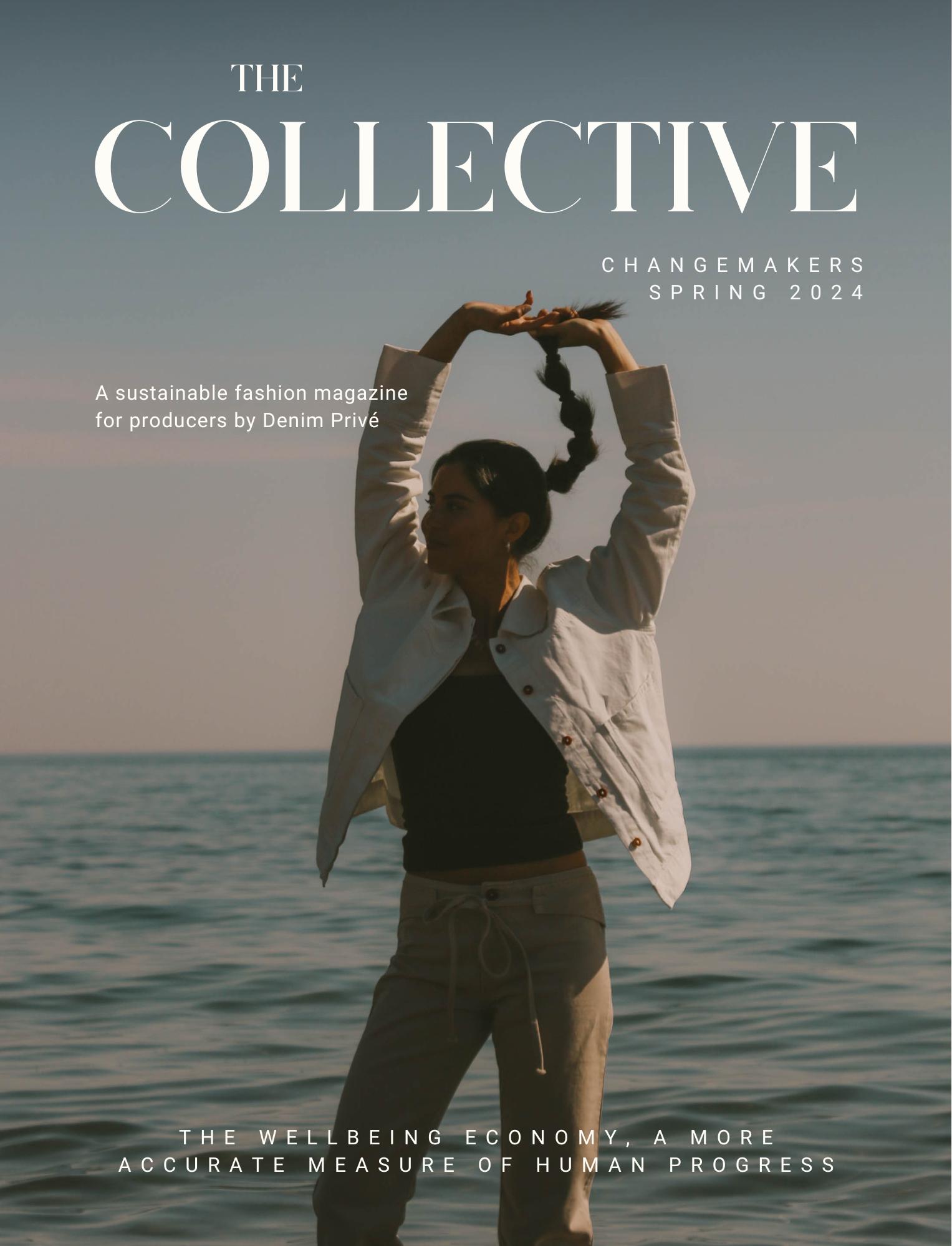
Table of Contents
Note from Denim Privé Founder
Denim Privé and Kassim Denim’s leader, Arsal Kassim, reflects on Denim Privé’s journey in the last year and how it relates to this ‘Collective’.
04. Process Map
06.
Transparency and accountability start with seeing the full lifecycle of denim. See how Kassim Denim and Denim Privé are vertically integrated.
DETOX by Ani Wells
Founder and Director of Simply Suzette, Ani Wells, writes about her stance against fossil fuels in fashion and how it comes to life in the collaboration with Denim Privé.
Denim Privé X Simply Suzette
Denim Privé and Simply Suzette teamed up on a collection that addressed the plastic problem in a meticulous and deeply human way.
08.
14.
Design for Compostability by Stijntje Jaspers
Co-founder of Fibreshed Netherlands, Stijntje Jaspers, searches for a future where our clothes can nurture our soil by discussing how to design with compostability in mind.
Innovations
Here are four innovations that merit attention because of the sustainable improvements they bring to the table.
The Wellbeing Economy
The future of sustainable fashion is based on an updated vision of the economy called the wellbeing economy and it comes with a clear framework for businesses to follow.
Podcast Highlights
The teams at Denim Privé and Kassim Denim gathered episodes from their respective podcasts to highlight the collective, which is the coming together of people to solve sustainability issues and concerns that affect the entire supply chain.
22.
24.
34.
46.
3

Arsal Kassim
NOTE FROM DENIM PRIVÉ FOUNDER
2023 was another year where here at Denim Privé, we’ve been striving to meet the challenges of the day and find ways to keep sustainability in sight. This year we’ve sought out more collaborations, which has been a sign of the growing interconnectedness and shared responsibility that we are all feeling as producers. Wherever there’s an innovation that can move humanity forward, there are people willing to share it. The dreams we had as a company at our inception in 2018 are growing right in front of us as we work and share to make denim a helping hand in a sustainable future.
This year our teams at Denim Privé and Kassim Denim joined forces on the Sustainability Changemakers Magazine to give a fuller image of what sustainability looks like from mill to garment manufacturer. This cohesion embodies the theme guiding this year’s issue of the magazine: The Collective. We felt these words really captured the spirit of the Wellbeing Economy, which is an updated and more accurate measure of human progress.
Our progress as a community of denim producers is more than can be captured in a single number. We must consider the human element. The life of our workers outside of work is part of the goal, as is what happens to the clothing we make after it leaves our care. The Wellbeing Economy means leaning into biodegradability, eliminating petrochemicals, and cherishing the people and environment where we work and live.
There are limits to what we can each do as individual people or companies, but when we band together, we see that what is better for all of us as a collective is what is best for each of us as individuals. We haven’t reached all our goals, but we are operating with more fruitful frameworks and it is palpable in how the industry responds to problems and incorporates solutions in meaningful ways.
This issue of the magazine is a transparent view at what we are doing, celebrating the innovations moving us towards more sustainable practices, and examining how these things follow the standard set by the United Nations. This is only the beginning, but we hope that showcasing innovations, design, and conversation from prominent denim leaders will paint a picture of what living in a Wellbeing Economy looks like from the inside. Every year is a new opportunity to see how much closer we can get to our goals and ultimately, a better tomorrow.
 Arsal Kassim, CEO and Creative Director at Denim Privé
Arsal Kassim, CEO and Creative Director at Denim Privé
5
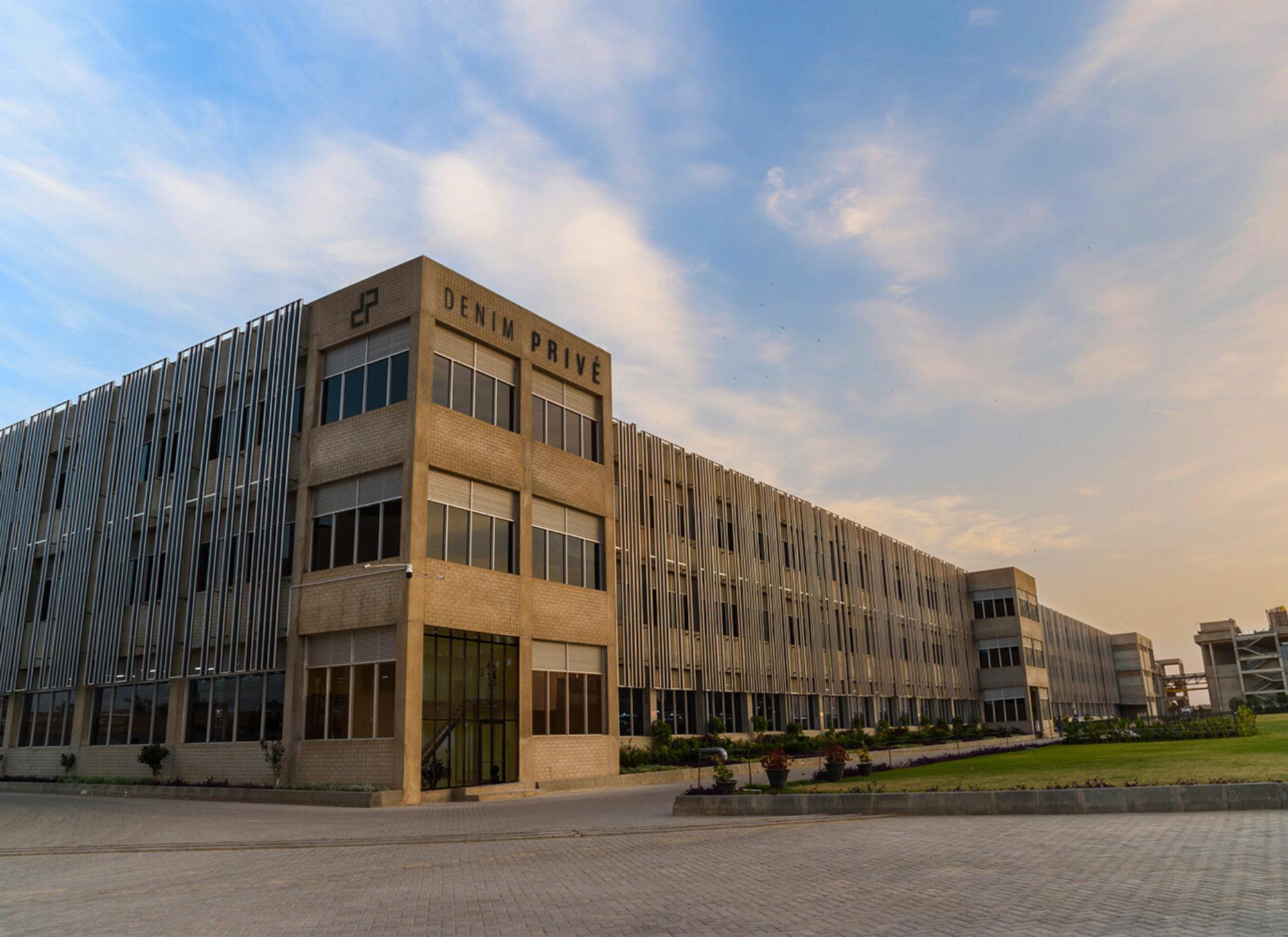
Process Map
Kassim Denim, founded in 1991, performs the fabric manufacturing process, turning raw materials, such as cotton, hemp, Tencel, and others into fabric. From here, the need for a sustainable garment manufacturer who regularly innovated grew. In 2018, Denim Privé was founded as part of Kassim’s vertical garment manufacturing operation from the desire to respond to this growing need by clients such as C&A, Kontoor, and Tom Tailor. Both Kassim Denim and Denim Privé operate independently, but often work collaboratively to further the progress in sustainable denim.
Kassim: Fabric
Denim fabric manufacturing: collection of fibres, blending, spinning, dyeing or colouring of thread, weaving of denim, coating and shrinking of denim, quality control of denim.
Denim Privé: Garments
Garment manufacturing: pattern production, cutting, stitching, washing, garment finishing, final product. RFC Cutting Stitching Washing Finishing Packing
Kassim and Denim Privé decided to team up for this 2024 Spring Magazine to give a more holistic picture of what the processes and innovations look like along a fully-integrated production lifecycle. Nothing guides transparency and accountability like understanding the full lifecycle of denim.
7
Ball Warping Dyeing Rebeaming Sizing Weaving Finishing
Detox
A STANCE AGAINST FOSSIL-FASHION

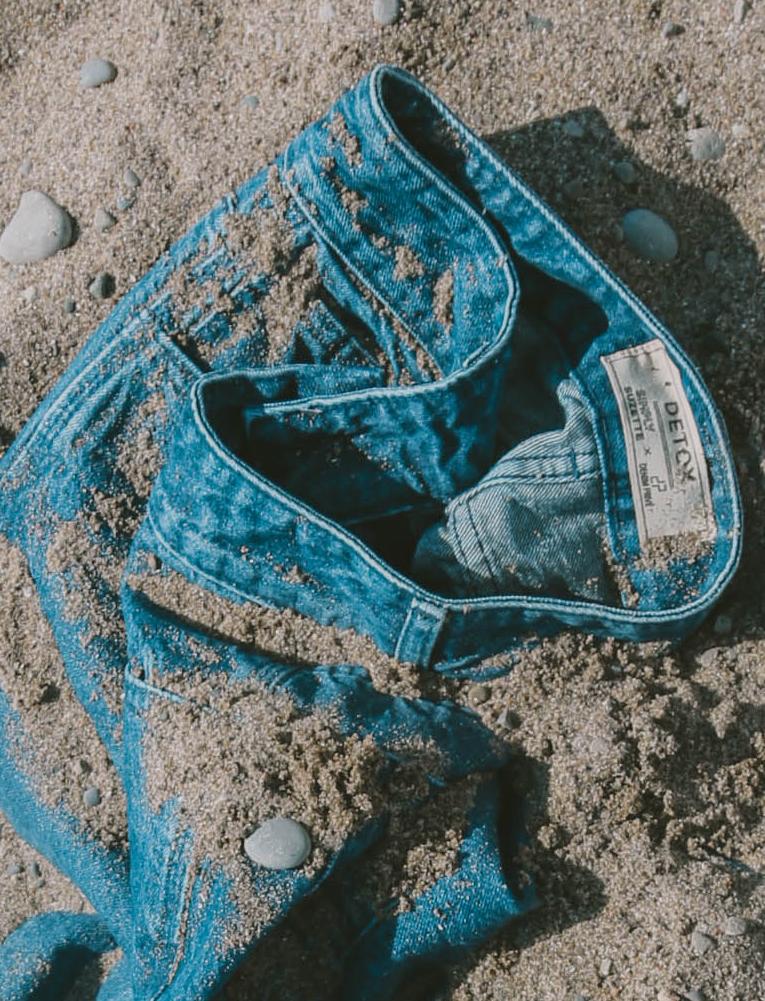

A COLLABORATION BETWEEN DENIM PRIV É & SIMPLY SUZETTE

The Detox collaboration by Denim Privé and Simply Suzette subtly but assertively makes a stance against fossil-fashion. This collaboration was inspired by a well-being economy, a refined way of thinking about what we value, what we make, and its impact on the world around us.
Detox represents the choices we have in everything we do, in this example, detoxing fashion by eliminating plastics and petro-chemicals, ensuring the people making it, the wearer, and our planet are at the forefront.
The essence of this collection lies in its commitment to materials and methods that respect the earth, as well as putting an emphasis on giving back – giving back financially to organisations supporting the move away from fossil fuels, but also ensuring the garments we have created go back to the land as food and not poison.
Denim Privé Spring 2024
It’s a departure from the prevalent use of plastics and petrochemicals in an industry that seems addicted to them, turning instead to biodegradable and compostable materials, dyes and trims. This choice is to explore fashion that can flourish in harmony with nature when we do so within planetary boundaries.
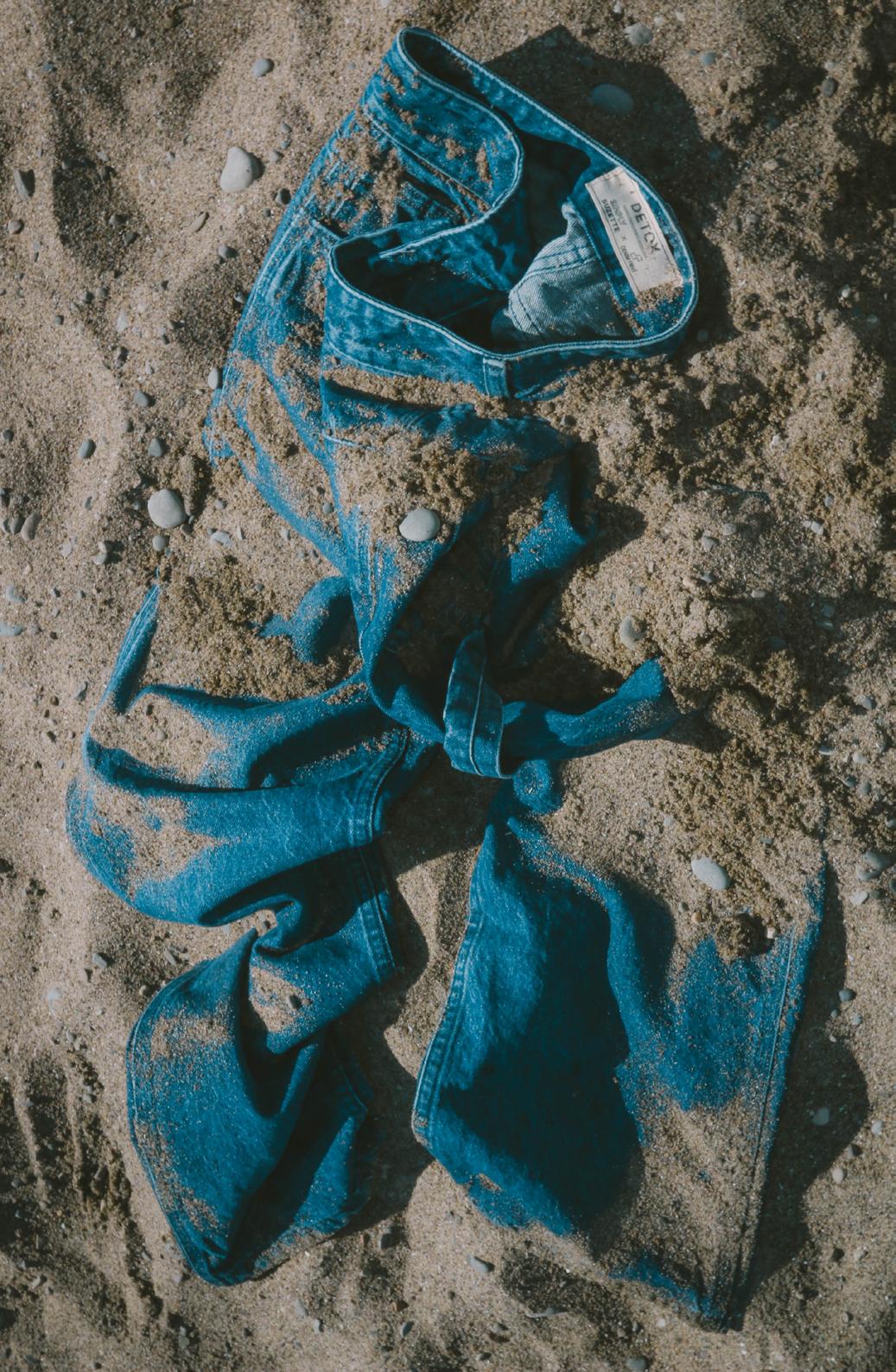
The aesthetic of Detox is a narrative of whimsical functionality. Through midi skirts, carpenter jeans, low-rise trousers, jackets, shirts, and totes, the collection tells a story of design that meets daily life with grace and diligence. Each piece is dyed using nature-based sources like natural indigo and almond shells, ensuring that even the palette speaks to the collection’s ethos.
Through the use of corozo nut trims, cotton labels and cotton sewing thread the collection ensures there are no plastic bits throughout its entirety.
This approach to design is not merely about appearance, but about mind -
By choosing natural ingredients over ones derived from fossil fuels, the collection reduces the chemical load and ‘forever waste’ released into the environment, aligning with a broader vision of a more diligent denim industry. It’s an example of how creativity and conservation can coalesce, offering a blueprint for making clothes that honour the wellbeing of the world’s beauty and the people living in it.
The integration of the Detox collection into the market comes with an impact twist: digital product passports and a direct link to supporting the fight against fossil fuels! These passports offer a look into the impact of each garment, inviting all to see that even when designed in “mindful” manners, our clothes will always have an impact encouraging critical thinking and thoughtful choices over taking buzzwords at first glance. Moreover, the inclusion of a donation button to the 350 charity on each piece underscores the collection’s commitment to not just minimising harm but actively contributing to the health of our planet, weaving the values of environmental activism into the very fabric of the collection.
11
Denim Privé Spring 2024
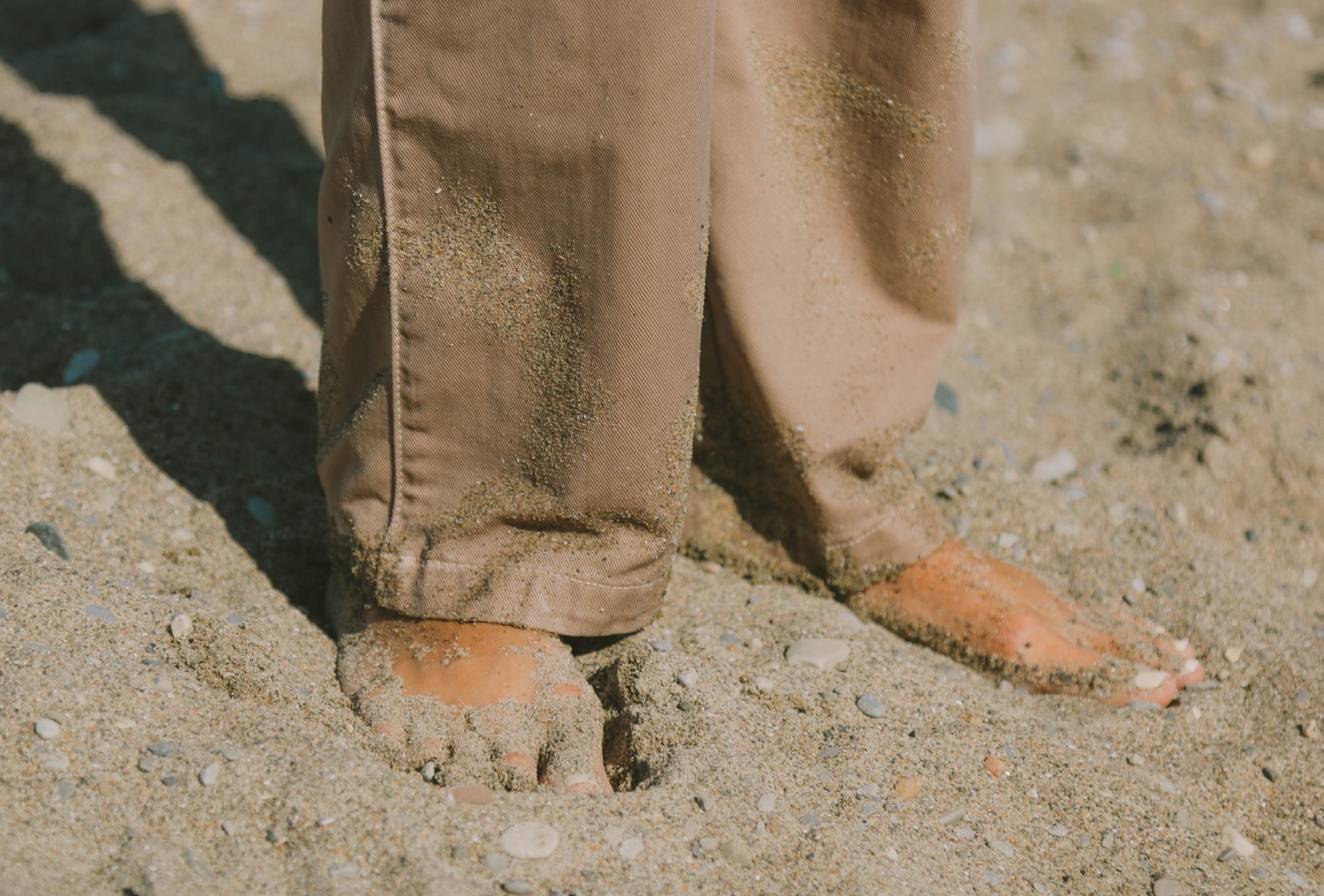
This collection, with its focus on compostability, absence of plastics and petrochemicals, and use of natural ingredients, offers a quiet but compelling argument for thinking deeply about our design choices. We are well aware that creating “responsible” collections will not save the world and the volume of production needs to change in order to move to a utopic fashion world we all hope and dream of. But, it suggests that the ingredients we choose to use can reflect our care for the earth, our respect for its resources, and our hope for its future and its inhabitants.
Detox is more than just a collection of denim. It’s a reflection on the role fashion plays in our lives and in our world. It’s an acknowledgment that every choice we make, from the clothes we wear to the causes we support, contributes to the legacy we leave behind. This collection doesn’t aspire to be a manifesto for change but rather a testament to the power of mindful manufacturing and the beauty of responsible design. It’s a reminder that even the simplest acts of consideration can weave together a future where fashion and the world can exist peacefully together.
Ani Wells, Founder & Director of Simply Suzette
Denim Privé Spring 2024
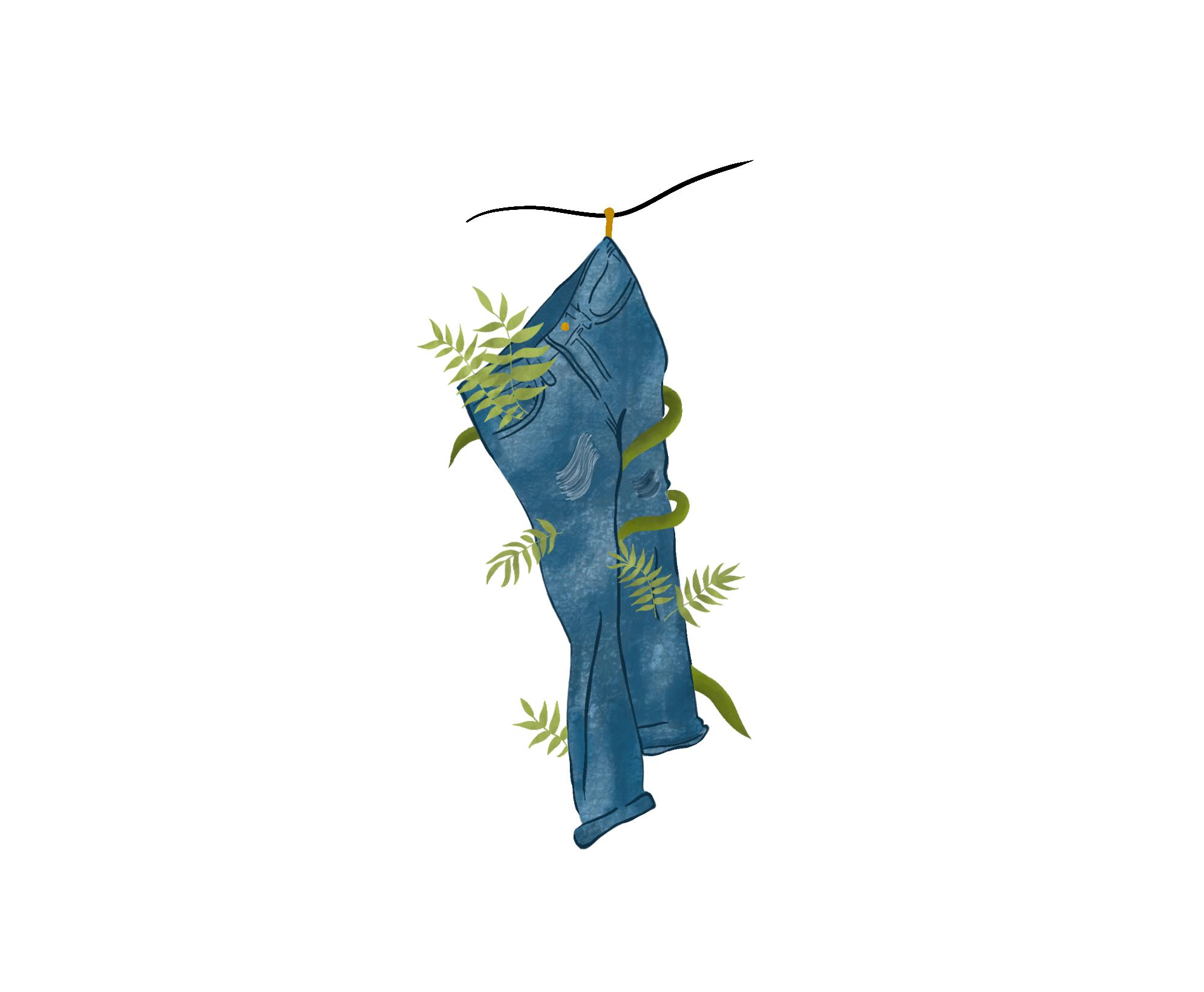
13
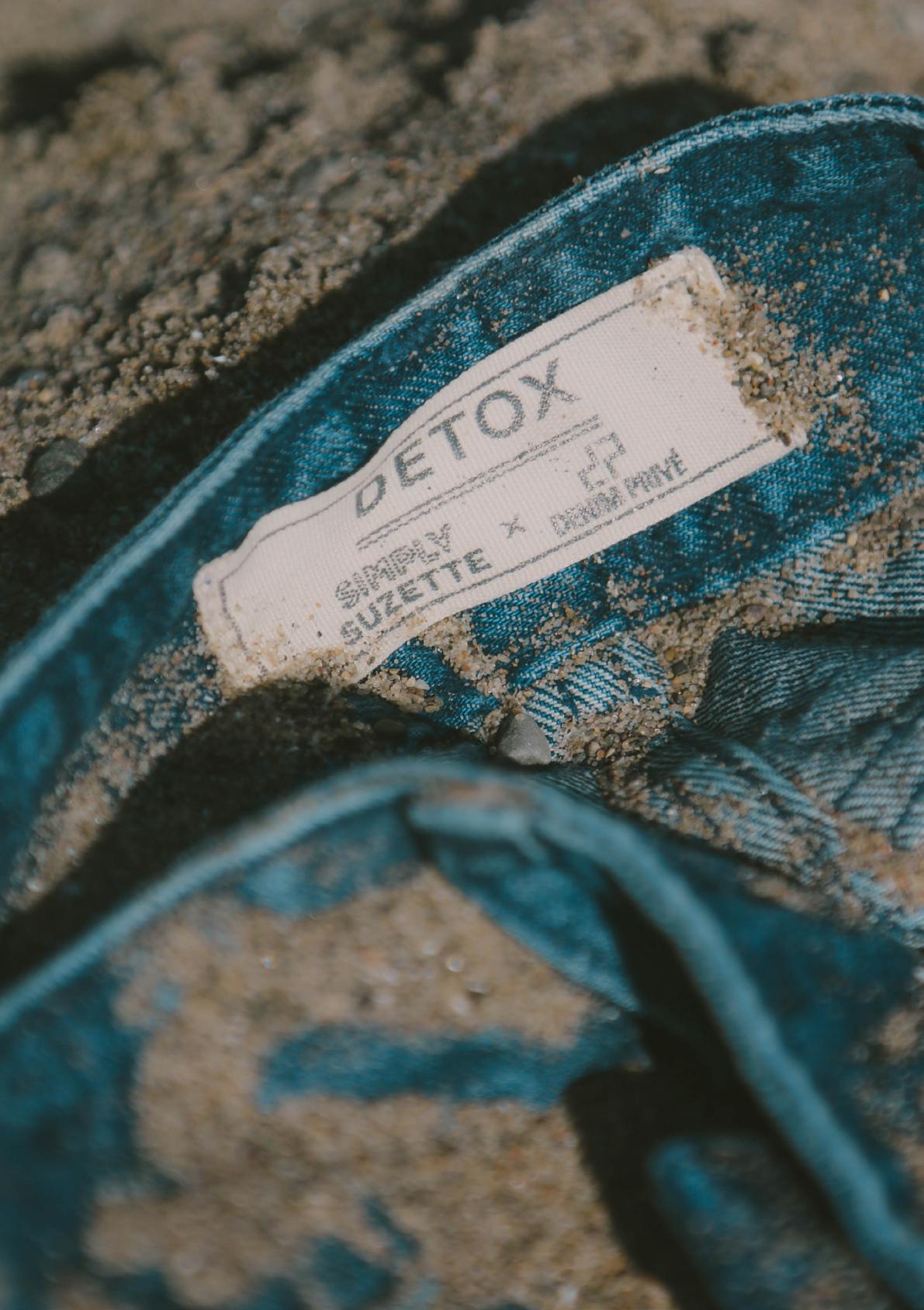


Privé X Simply Suzette KEEPING
BIODEGRADABLE Detox
Denim
IT
Collection


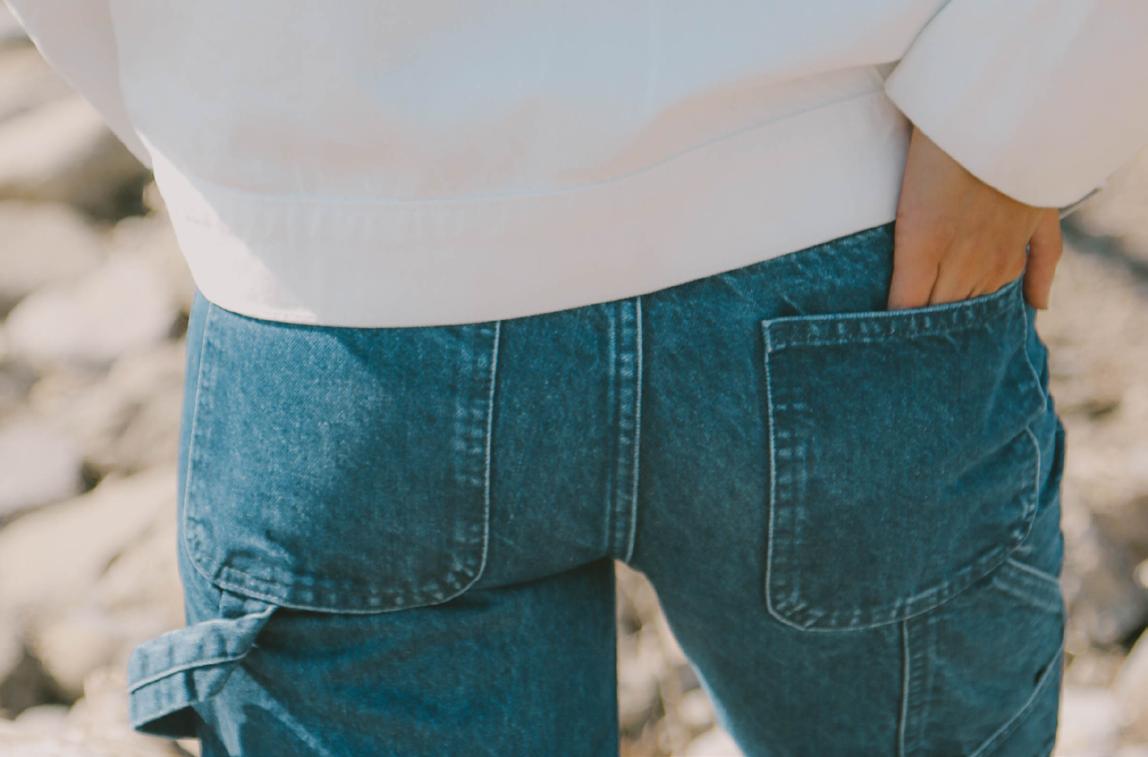


15
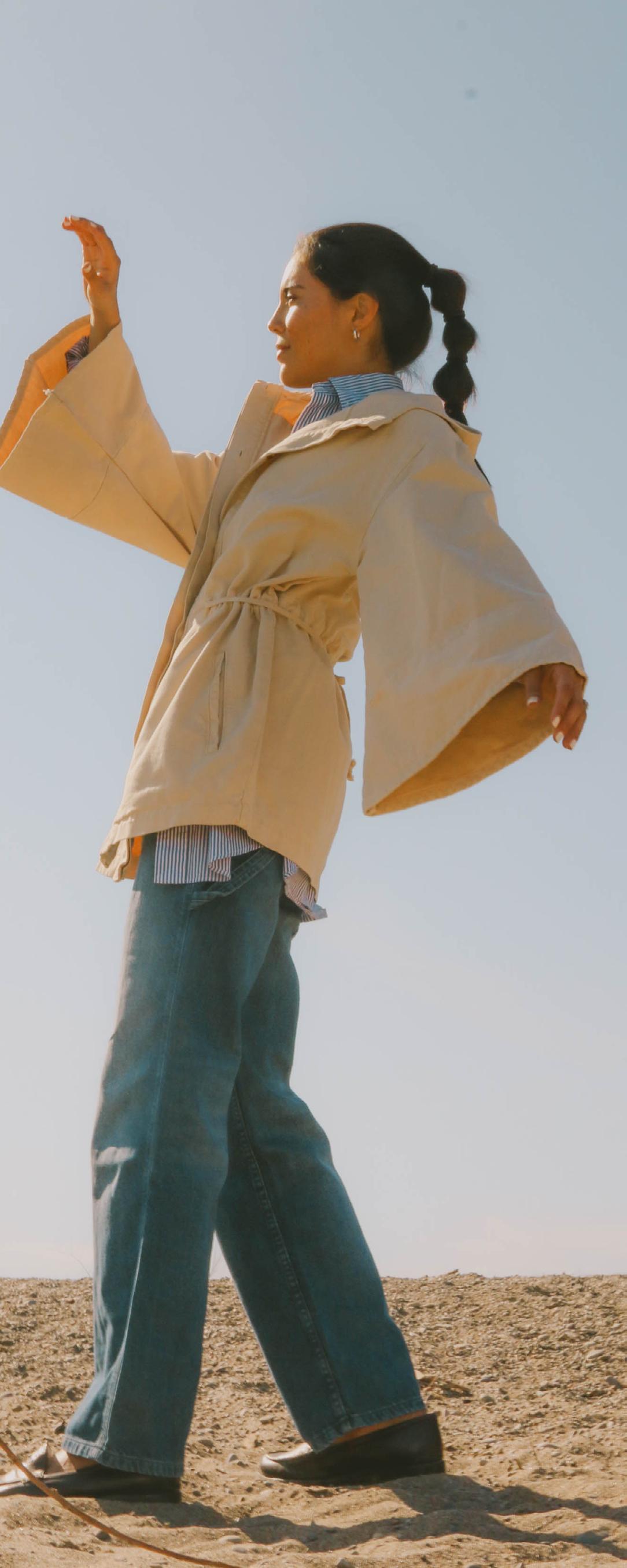
While the alarm on plastic was rung many years ago, the problem persists through perpetual use of many synthetic fabrics and materials that are made of petrochemicals. Petrochemical products aren’t limited to plastic or clothing. It includes fertilisers, packaging, digital devices, medical equipment, detergents, tyres, and more. The fashion industry however is responsible for a large percentage of the continued use of petrochemicals and can do more to address this problem. Petrochemicals make up 12% of global oil demand, which is only predicted to increase.1
The Plastic Problem
Many industries that continue to rely or use plastics make a big show of the effort to recycle plastic, but the truth is that only 9% of all plastics made have been recycled. This is due to the difficulty in sorting, in actually recycling, and in what plastics can successfully be recycled. Plastic waste is often exported and passed onto the next organisation. Plastics emit greenhouse gases throughout their entire life, contributing significantly to the climate crisis. Just think, “At least 11 million tons of plastic waste make their way into oceans annually, harming wildlife – including seabirds, sea turtles, marine mammals, and fish – and threatening the right to health, as toxins from the plastics enter the food chain.”2
1 Iea (no date) The Future of Petrochemicals – analysis, IEA. Available at: https://www.iea.org/reports/the-future-of-petrochemicals#.
2 Plastics & Petrochemicals (2023) Climate Rights International. Available at: https://cri.org/fossil-fuels/plastics-petrochemicals/.

17
Confronting the Plastic Problem
Through the Detox Collection
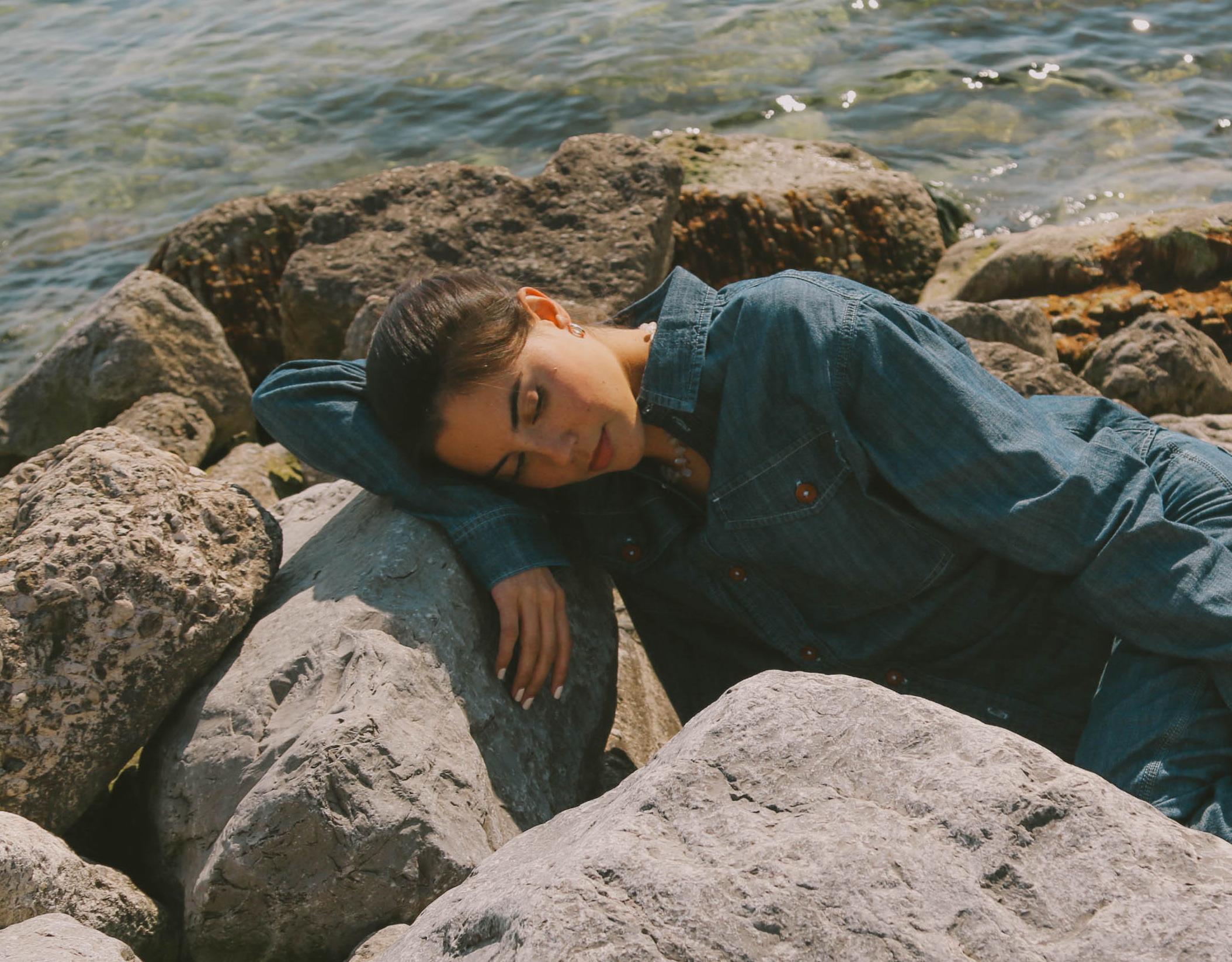
Instead of relegating the plastic concern to old news, Denim Privé and Simply Suzette tackled it head on through the Detox Collection. Denim Privé partnered with Ani Wells from Simply Suzette to create a biodegradable collection called the Detox Collection. The goal was simple, to create a collection that celebrates the moving away from fossil fuels and petrochemicals. This means using the most low impact materials and processes to minimise the carbon footprint, especially at the end of life.
The teams worked closely to ensure that the eight unique fashion pieces were all up to the biodegradable standard—all plastic-free and
metal-free. Our conversations started in the middle of the year 2023 to guarantee that Ani’s vision came true. Her wishlist covered every element that goes into a garment: fibres, yarns, processes, trims, and tags. The final products included the Unisex Shirt, the Midi skirt, the Carpenter jeans, the Hip Hugger pants in a natural dye, The Unisex Classic top, The Cocoon hooded jacket, and the Reversible tote.
In the end, what went into the garments in terms of process and materials is a close match to the ideal, making substitutions and adjustments to design and process where needed. Some pieces were dyed using vege-

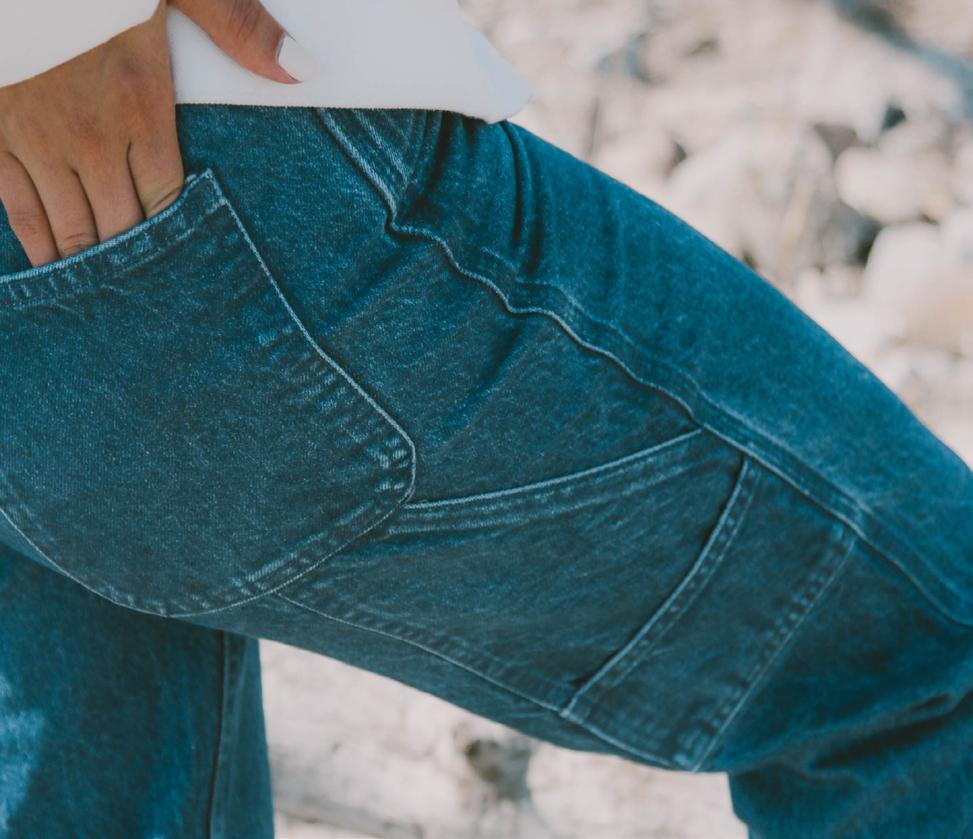
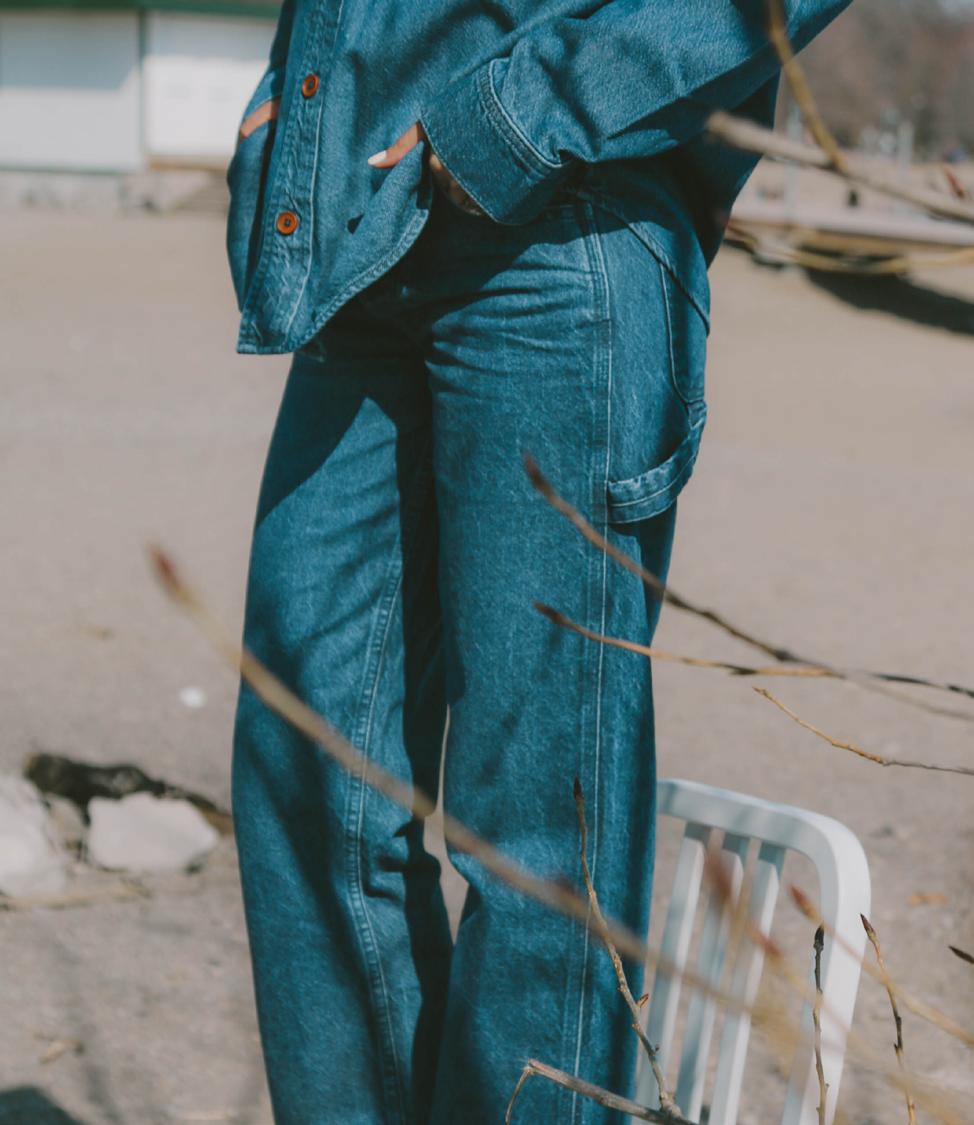
table-based natural dyes. This gave them a more natural appeal. Others were dyed using the Smart Indigo technology, where the indigo molecule is broken by an electromechanical process where the only byproduct is pure oxygen. The garments underwent enzyme washing instead of using synthetic detergent. About 4.5 to 6 litres of water were used per piece instead of the traditional 47 litres. All pieces had a negligible equivalent of PO4.
The collection features garments crafted from regenerative fibres, such as Regenagri cotton and hemp, utilising natural dyes and nature-inspired processes. The two fabrics in the collection are Frost and Snow. Frost is
100% Organic Cotton and Snow is 50% Reagri Cotton, 50% BCI. All threads are 100% Cotton Ecru. The buttons are all-natural Corozo Buttons, which have a unique grain pattern, provide a scratch-free experience and are highly durable. They contributed to the no-metal element of the garments. As a natural material, Corozo nut buttons will biodegrade once disposed of. If left in a compost heap, they will eventually biodegrade over a few months, meaning no trace of the button will be left. The reversible tote bag incorporates leftover fabric in a push to upcycle.
19

Behind
the
Scenes of Ani Wells’ Visit to Karachi
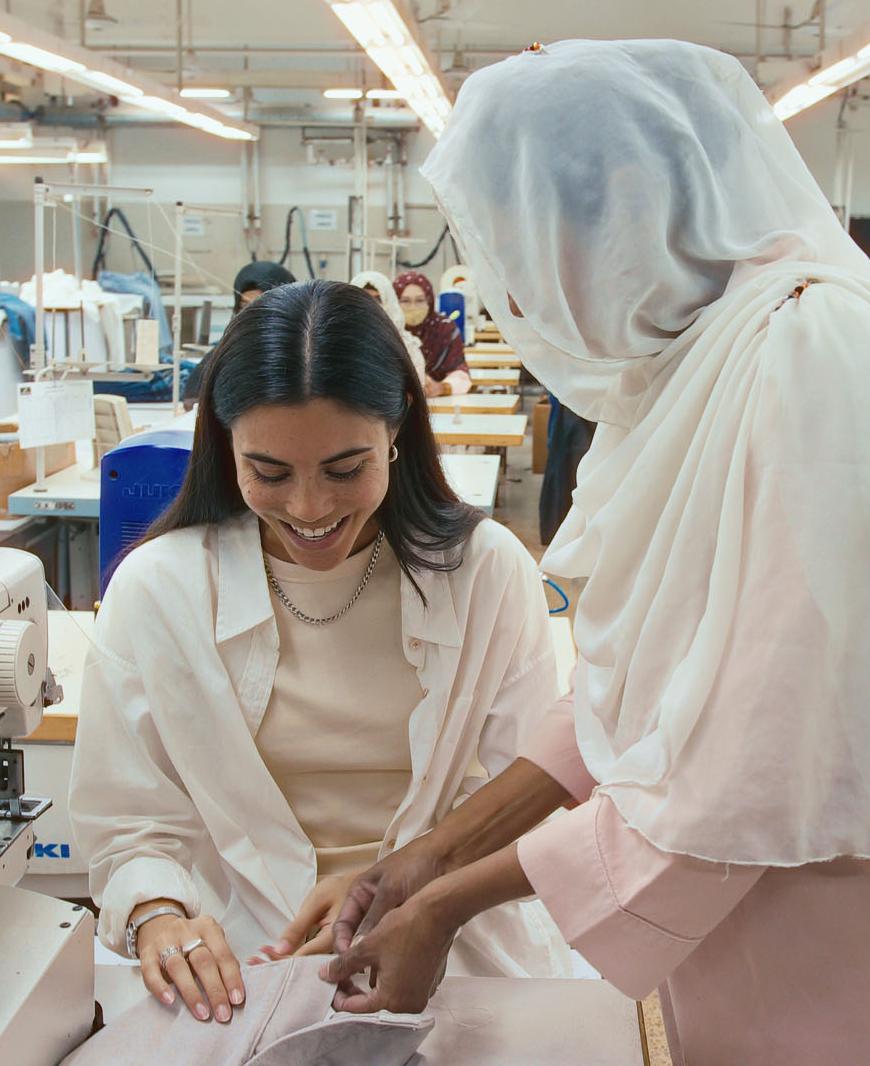
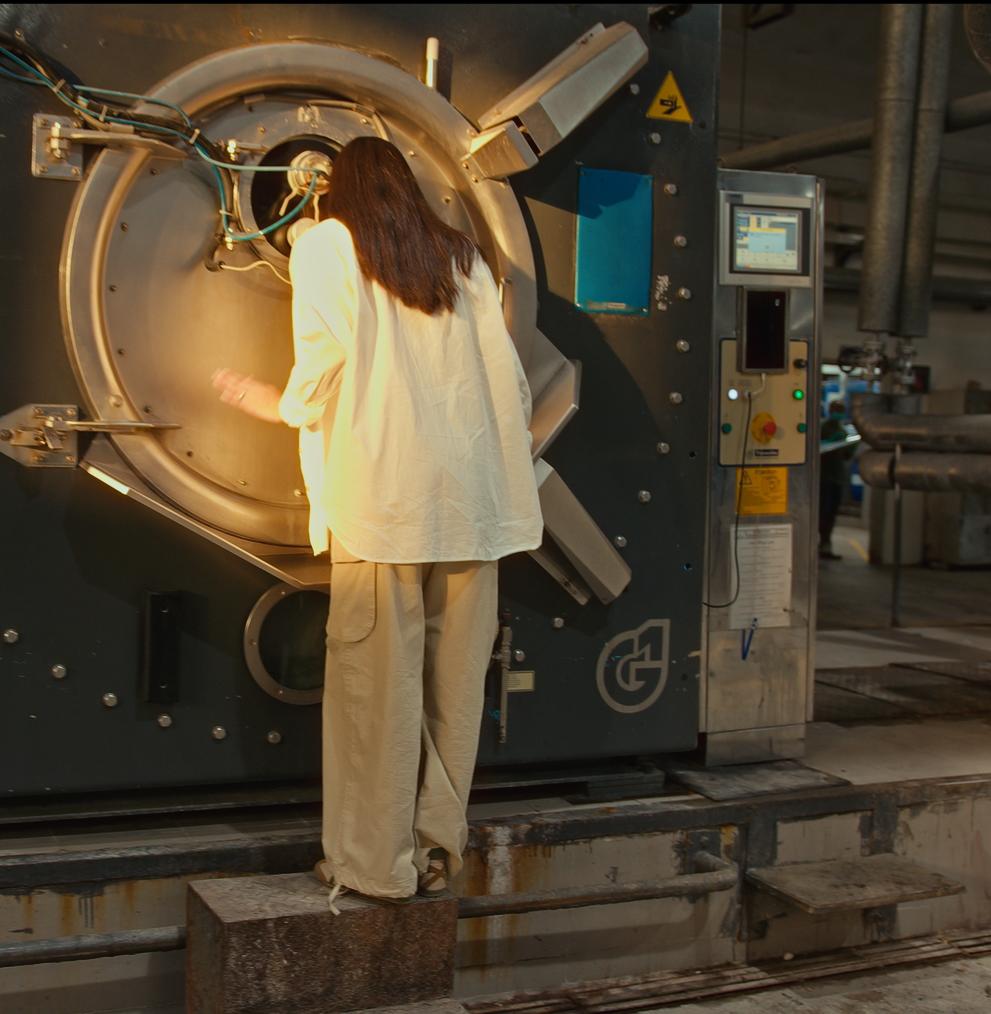
Ani Wells visited Karachi to see first-hand not only the materials that went into the collection but also the processes and the community that surrounds Denim Privé. Ani reviewed the factory, witnessing firsthand the responsible working conditions and seeing the technology that made the collection so sustainable. Upon closer inspection, Ani got to see how her vision and the endless talks about what materials to source came to life. The team then together buried a pair of trousers from the collection to see how it would decompose in time, and that pair can be examined at Denim Privé’s booth at Kingpins Amsterdam in April 2024.
During her visit, Ani spent time in the city of Karachi, even playing cricket. She visited sorting facilities to discover how we, as an industry, are dealing with the waste
and afterlife problem of garments. It was deeply satisfying to see Ani happy with how the collection came to life at Denim Privé’s facilities. Having developed this Detox collection, we are making a point about the use of fossil fuels in garment production and starting a discussion around eliminating it altogether.
The Detox Collection is a commitment to the environmental health and personal wellness of those who wear and produce garments, from Karachi to the world. This is the harmonious vision of the Wellbeing Economy where the prosperity of the planet is intrinsically linked to the health of its inhabitants.
21
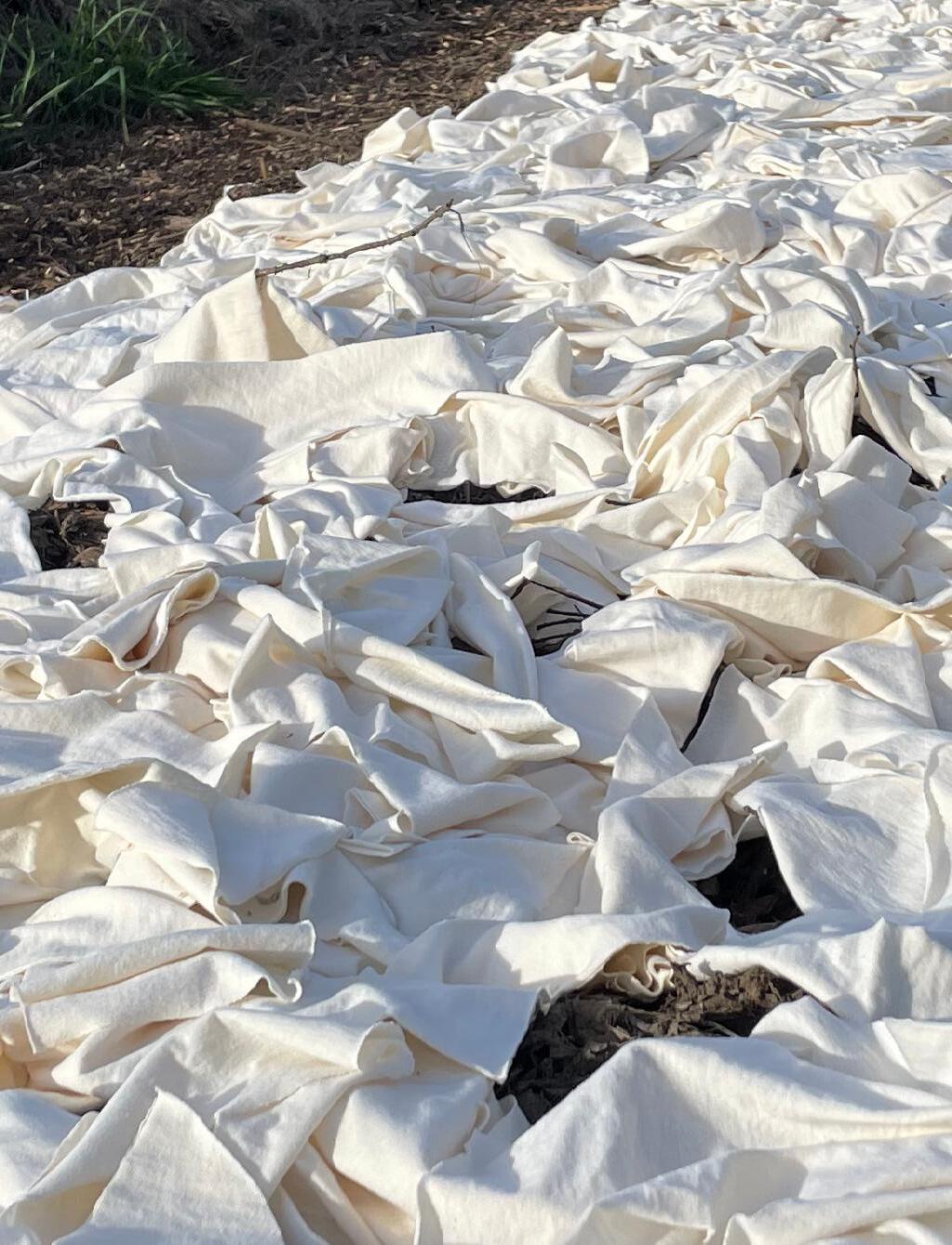

Design for Compostability.
WHAT IF OUR CLOTHES COULD NURTURE OUR SOIL?
At the heart of a circular economy lies the concept of bio-circular design, which emphasizes prolonged use and composting as the ultimate step. This final step is currently missing and is hardly thought about by textile designers and producers. We no longer know what to do with the rapidly growing volumes of synthetic textile waste: bury, burn, recycle... it's a battle against the odds. Synthetic textiles cannot biodegrade, creating waste that disrupts the natural balance of our planet. Human-produced mass now exceeds all living biomass on Earth. It's crucial that materials we use can return to nature, completing the cycle. Clothing and textiles are commonly sewn with non-natural thread, fabrics can be blended with synthetic fibers, some make use of chemicals of concern and contain non-natural dyes. All of which currently conspire to make composting unviable. Compostable materials, however, decompose into nontoxic natural
components, enriching our soils in the process. Natural fiber materials that are not treated with harmful chemicals can easily cycle through ecosystems like other organic materials. With compostability as a crucial focus to close the Soil-to-Soil circle, all aspects of designing and manufacturing textiles and clothing should be reconsidered, including the dyeing process. In the current system, chemical textile dyeing is one of the most polluting steps. Only natural fiber materials and products that are free from harmful synthetics and chemicals can seamlessly integrate into our ecosystems.
Fibershed is a global movement of local communities developing regional fiber systems that build soil and protect the health of our biosphere. Across the world, regional affiliates are working on rebuilding local textile value networks, with the aim to ensure compostability of all locally produced and manufactured texti-
Denim Privé Spring 2024
Photographs by Heather Podoll, from the compost trials at the Fibershed Learning Center in Point Reyes Station.

Being aware that chemical textile dyeing stands out as one of the most polluting steps, Fibershed NL spearheaded the ‘Herbto-Colour’ project in collaboration with Wilder Land, Roua Atelier, and Hul le Kes, aimed at developing natural dye pigments from herbs that enhance biodiversity. Although industrial application of biobased, natural materials and dyes at scale still poses some challenges, there appears to be a growing demand from the public, designers, and true authentic brands. They want to leave industrial uniformity behind, embracing the distinctive signature that nature can add to their designs.
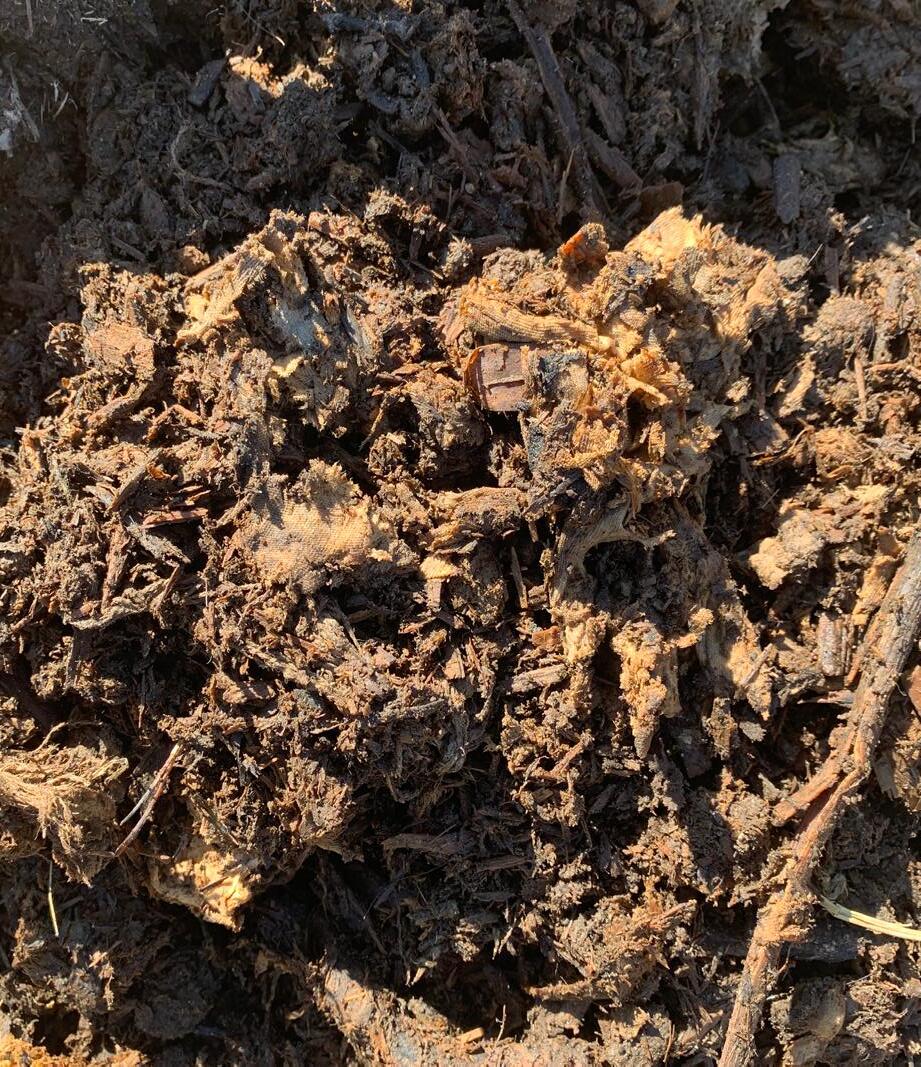
Also, at the mother of all Fibersheds in the USA, compostability becomes a lens through which they can understand parameters for healthy textile products, Heather Podoll: “Since June 2022, Fibershed has conducted textile compost trials at our Learning Center in Point Reyes Station, California, USA. In partnership with Harvest & Mill, a local clothing manufacturer that uses untreated and naturally dyed organic cotton textiles to make their clothing, we have been incorporating manufacturing textile waste scraps into our compost piles to demonstrate the ease with which cotton decomposes in compost and its ability to help nourish the soils of our gardens”.

Because textiles will be a new feedstock for the compost industry, it is important that clear standards for compostable textiles are established to ensure the quality of compost remains intact. Efforts to achievev these compostable textile standards are ongoing. In 2023, Standards Australia was one of the initiators, led by Stephanie Devine of ‘A Very Good Bra’. Also, Fibershed will develop a 2-year textile compost research project with University of California, Merced; Cotton Incorporated; and Bowles Farming Company.
What if clothing is treasured, locally produced, compostable post-use, and nurturing our soil?
Let’s grow a new regenerative and biospherebased textile system together and create a more versatile range of high-quality compostable materials and clothing!
Stijntje Jaspers,
Co-founder & Programme Director of Fibershed Netherlands
23 Denim Privé Spring 2024

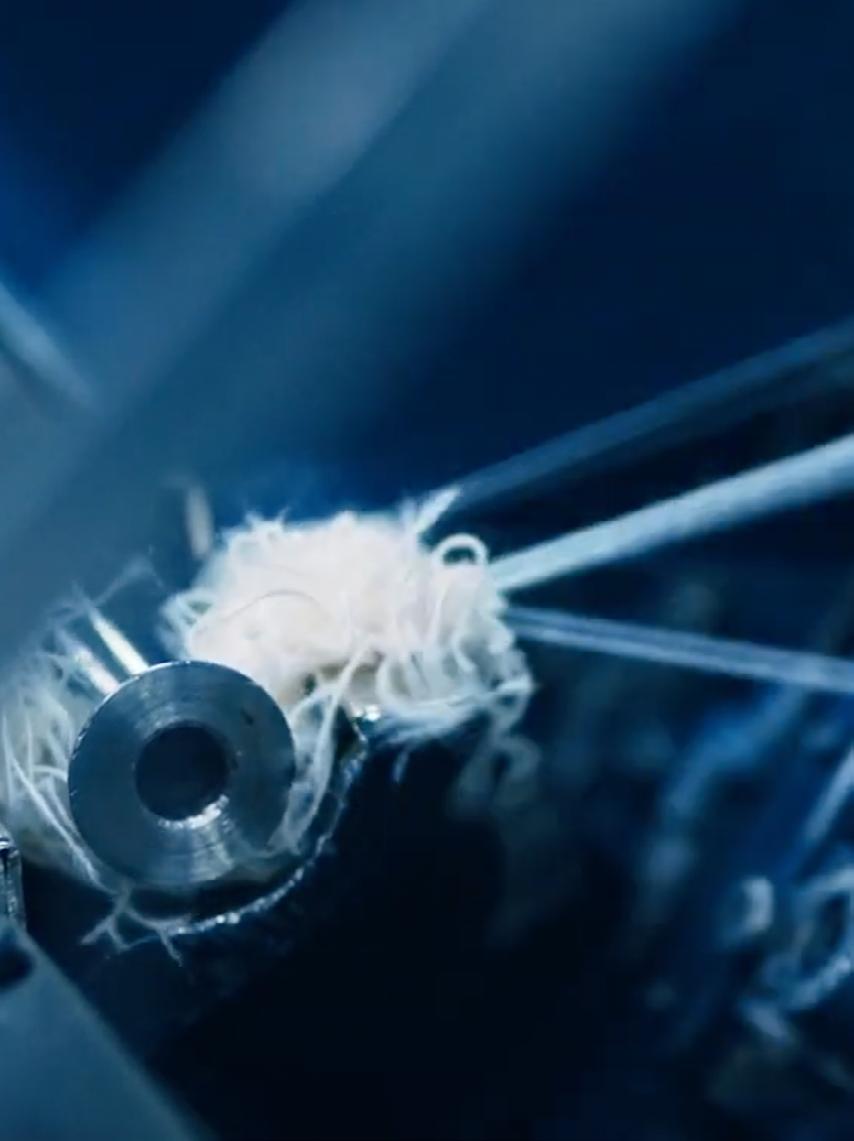
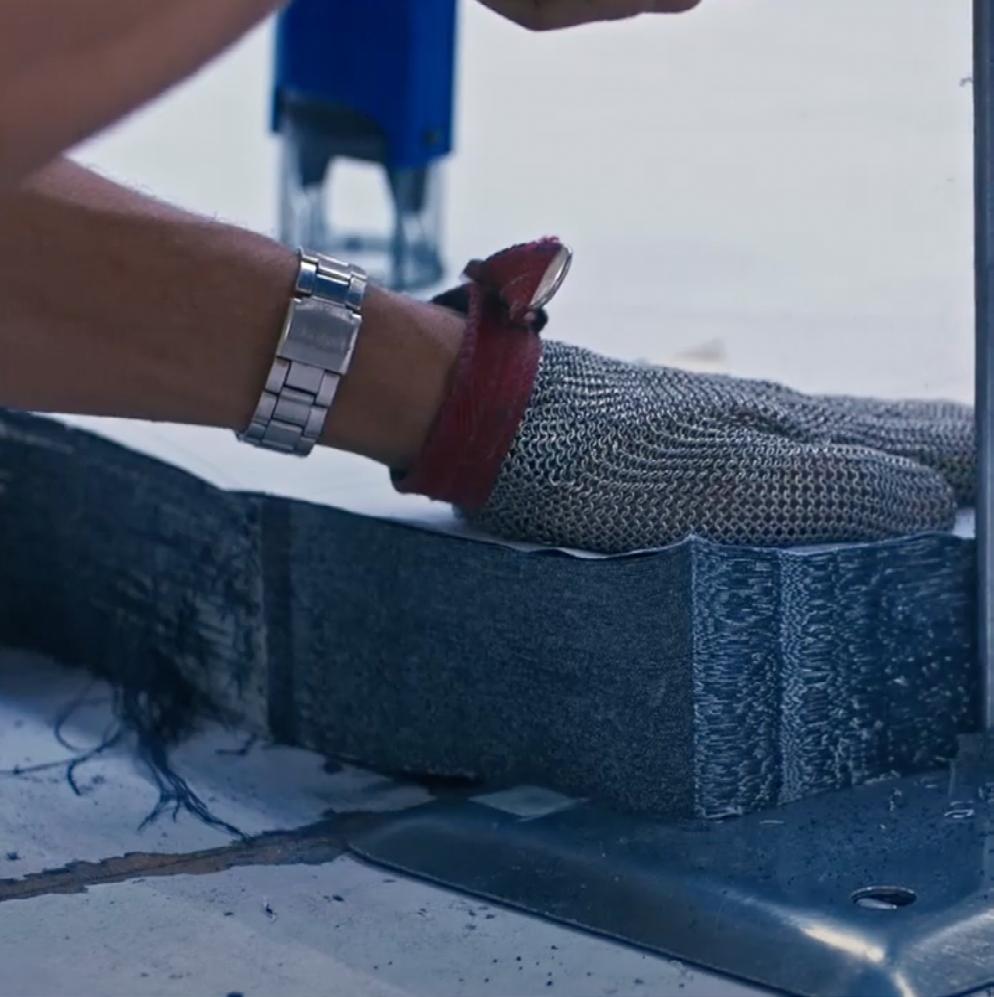
Innovations
OUR TECHNOLOGIES AND FABRICS



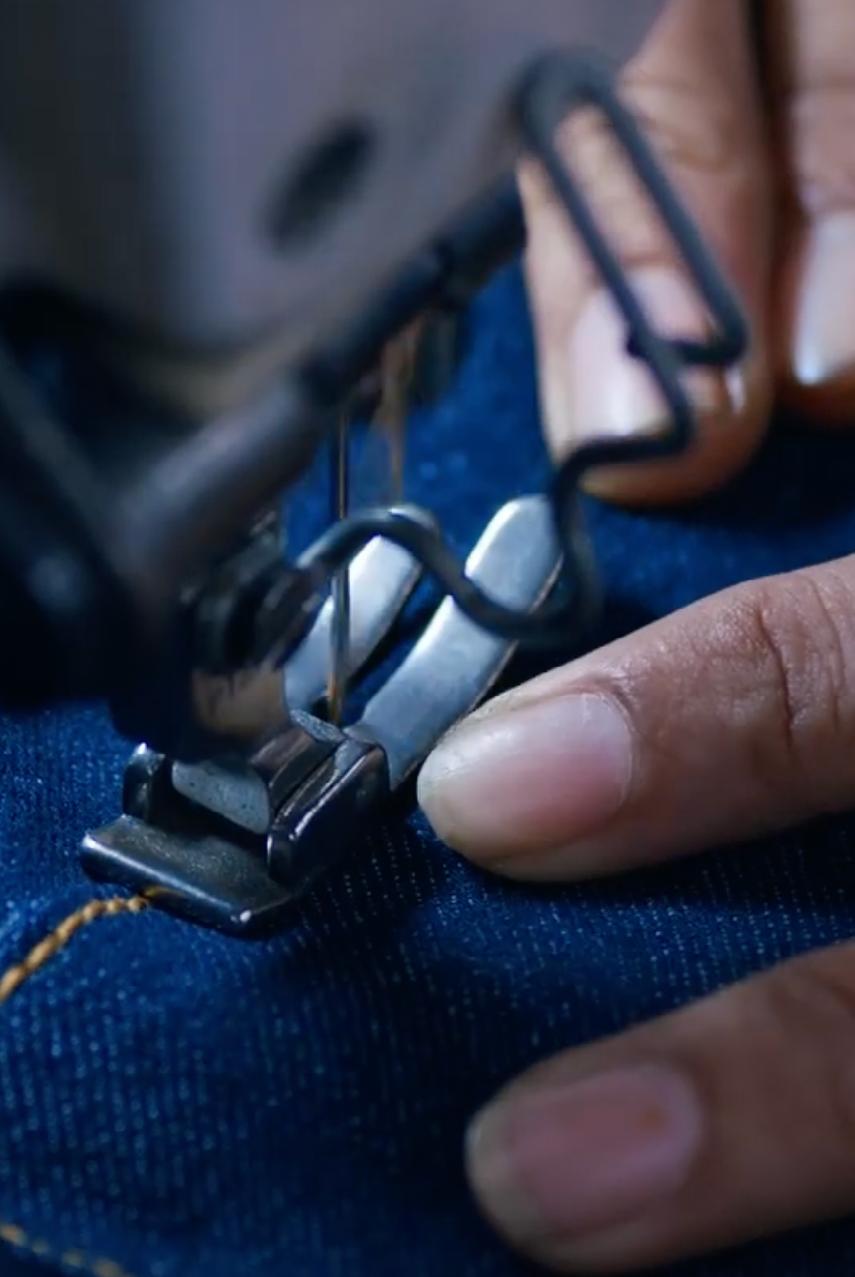
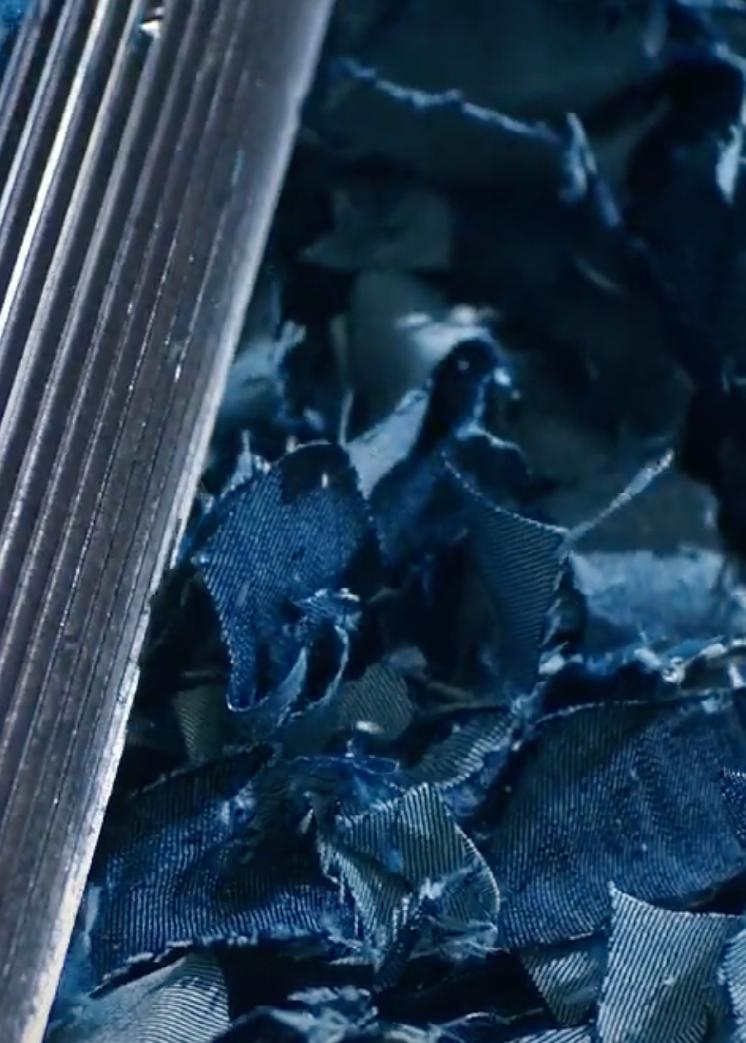
25
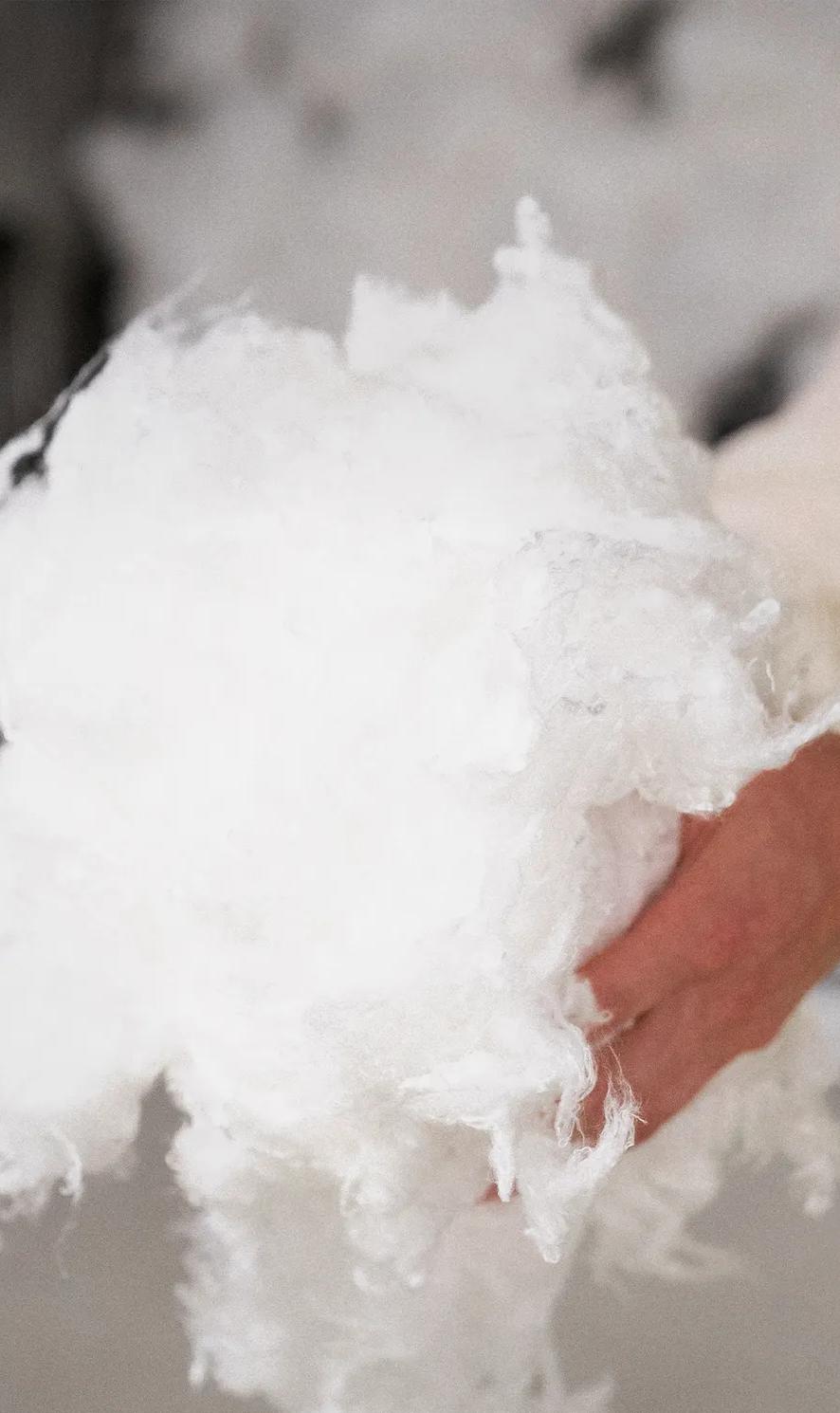
Matte Tencel Fabric
TENCEL™ Matte retains all the sustainable qualities of TENCEL™, sourced from natural raw materials, particularly wood. What sets it apart is its matte finish, countering the traditional shiny look often associated with TENCEL™ denim. This durable, breathable, and biodegradable material adds a subtler style to denim products. It’s the perfect choice for those who appreciate eco-friendliness without compromising on aesthetics.
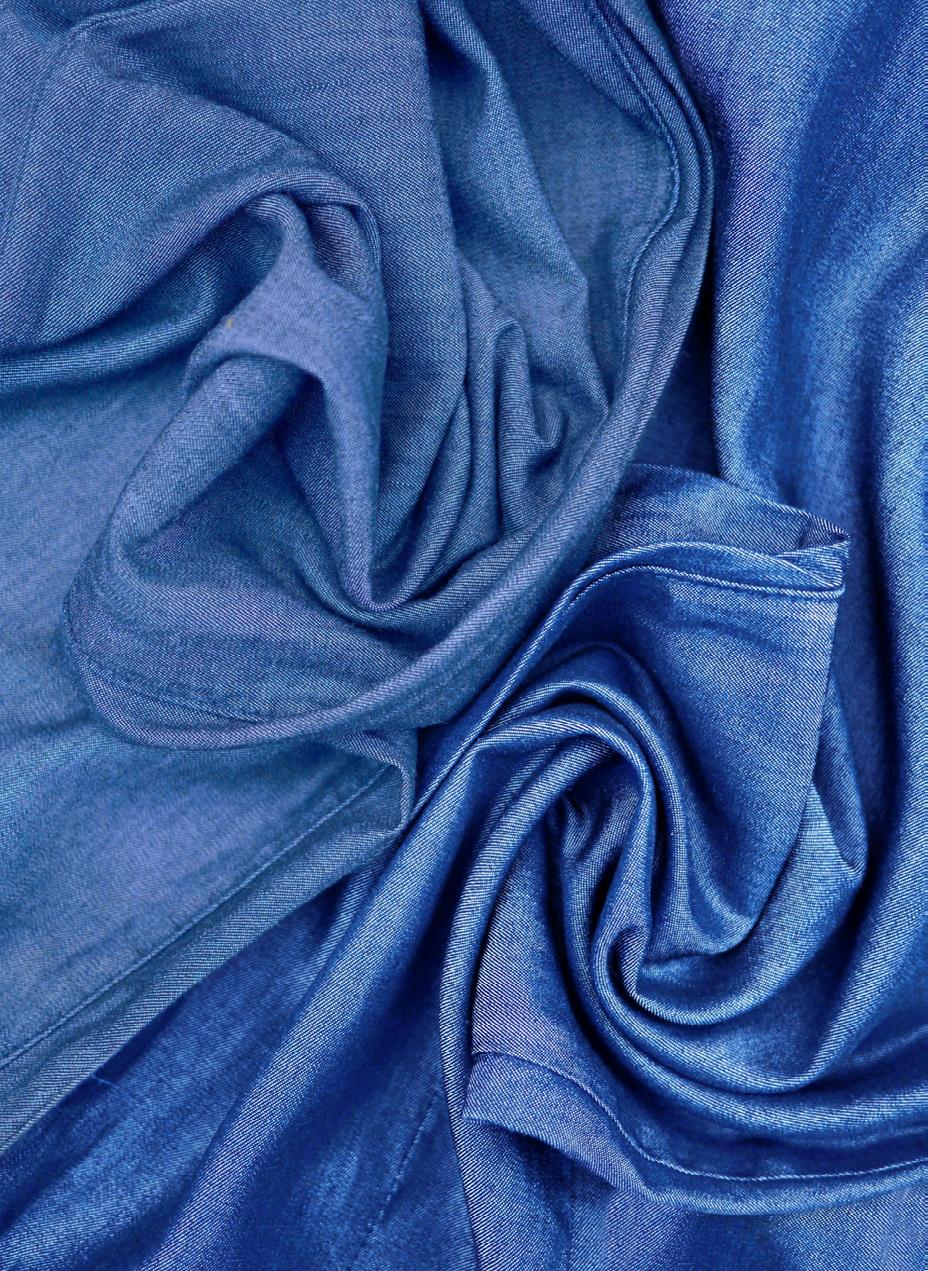
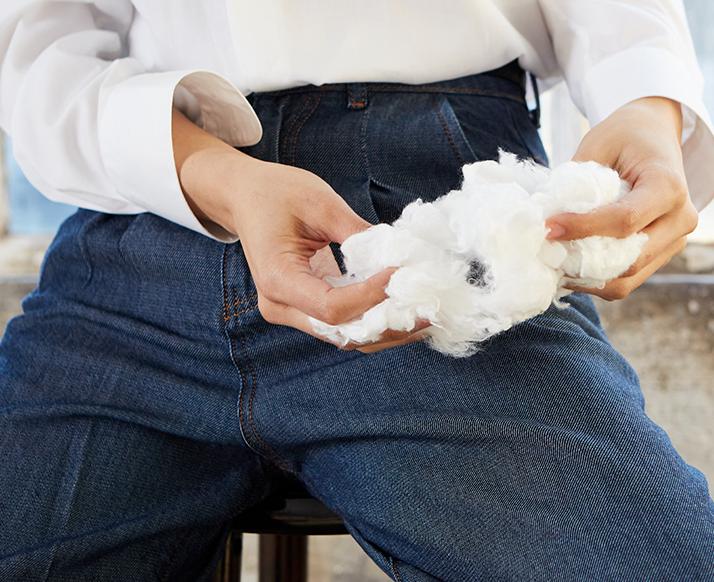
A long-lasting, soft, and breathable fabric from a cellulosic fibre of botanic origin. It is both strong and smooth and provides a sustainable alternative to cotton.

27

CleanKore takes the traditional denim production setup and machinery and adapts it to be more sustainable, cutting out dangerous chemicals and inefficiencies, saving resources and money. They do this through patented technology that changes how yarns are dyed at the denim mill, which keeps the core white. The lack of yarn penetration is what leads to an improved sustainable product.
Specifically, CleanKore eliminates the need for potassium permanganate spray and the neutralisation process at the garment washing. Kassim Denim is the only mill in Pakistan that has adopted the CleanKore process.
CleanKore Process
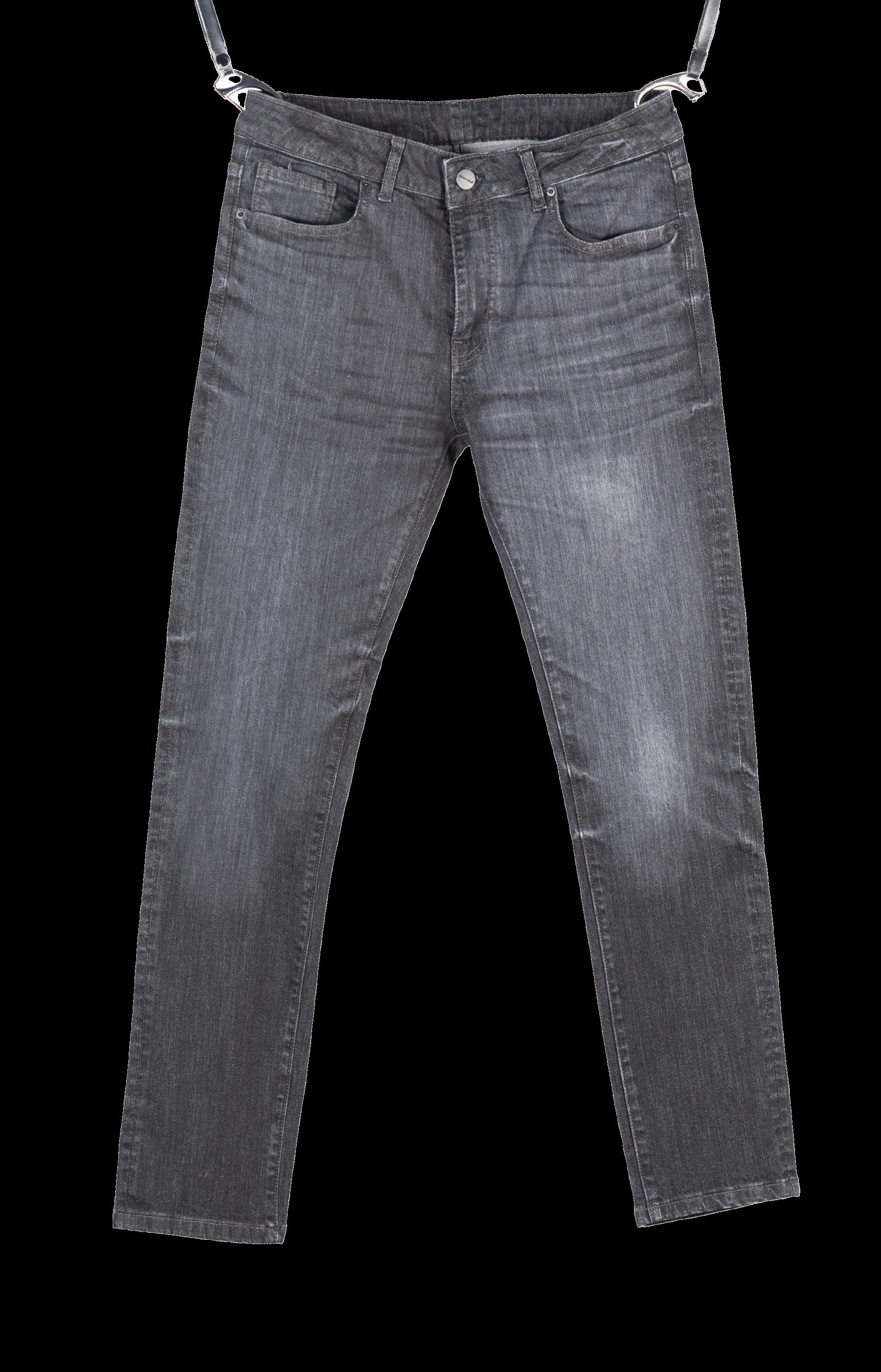
29

Regenerative cotton is a type of cotton that grows using principles and practices of regenerative agriculture. This means improving soil health, increasing biodiversity, bettering social fairness, and promoting a closed-loop system geared towards benefiting the environment and the local communities. Oftentimes regenerative cotton gets confused with organic cotton. While organic cotton has its merits, it is primarily concerned with avoiding synthetic chemicals and pesticides. Regenerative cotton is a more comprehensive approach to sustainable farming.
Specifically, regenerative cotton farming means using cover crops to build soil health, rotating crops to reduce pest pressure, and using compost and other natural inputs to improve the soil’s long-term health. Regenerative cotton farmers also often use agroforestry, which involves planting trees in and around crops to provide shade, promote biodiversity, and improve soil health.
Cotton Fibre Regenerative
The regenerative cotton used by Kassim Denim is sourced from Turkey and has the regenagri Content Standard Certificate. Furthermore, Kassim Denim issues Transaction Certificates to customers with any bulk orders.
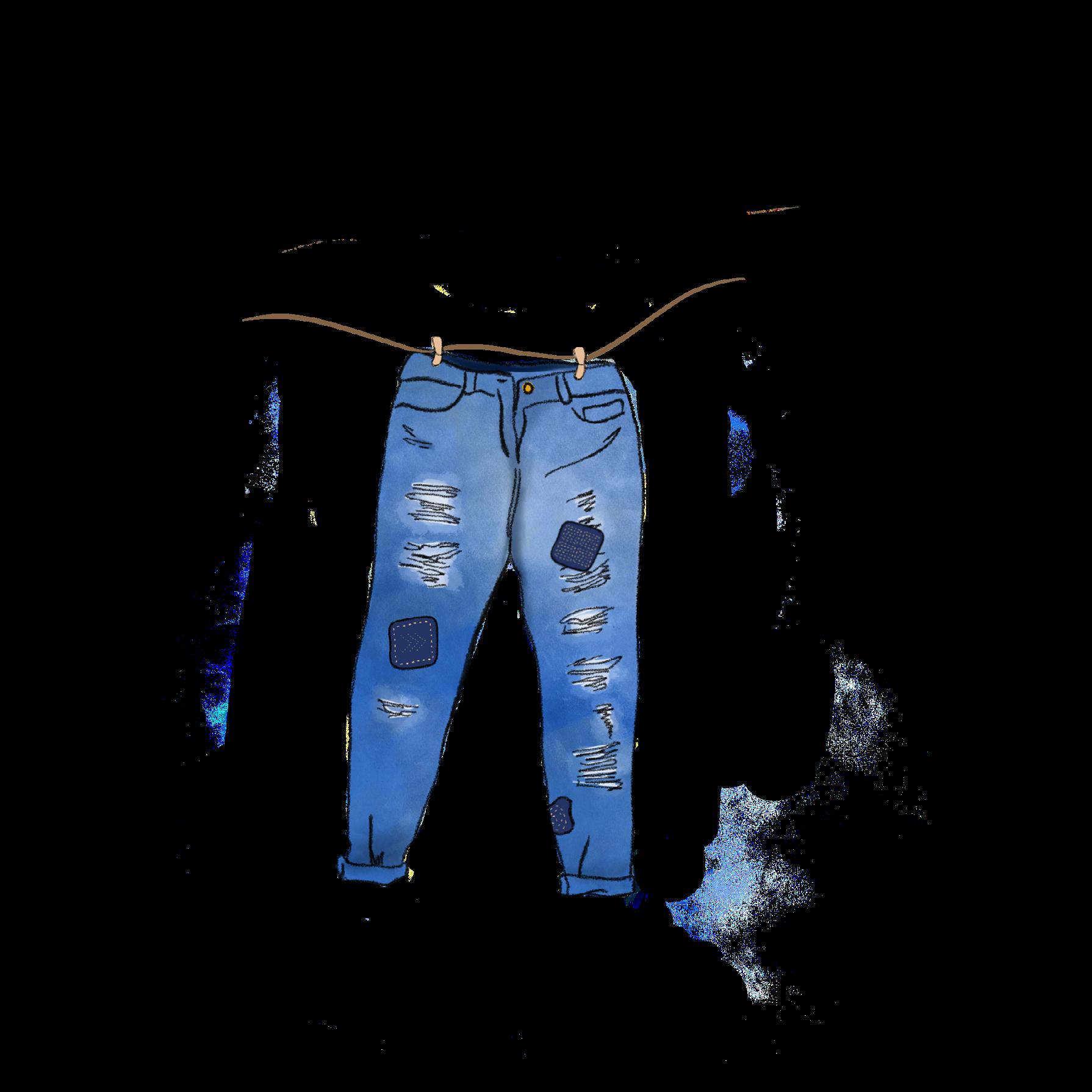
31
Lycra Adaptiv Fibre
LYCRA® ADAPTIV fibre is about an easy and soft stretch with mid-level compression. It’s not for sculpting but for shaping.
The introduction of LYCRA® ADAPTIV fibre is a game-changer for the apparel industry. This innovative technology allows garments to adapt to different lifestyles, movements, and body types. It achieves this through a unique polymer chemistry that adjusts to the wearer’s needs.
When at rest, it offers a comfortable, supportive fit. When in motion, it adapts its elasticity, enhancing comfort and ensuring the garment stays in place. LYCRA® and Kassim Denim are supportive partners in their sustainability goals.




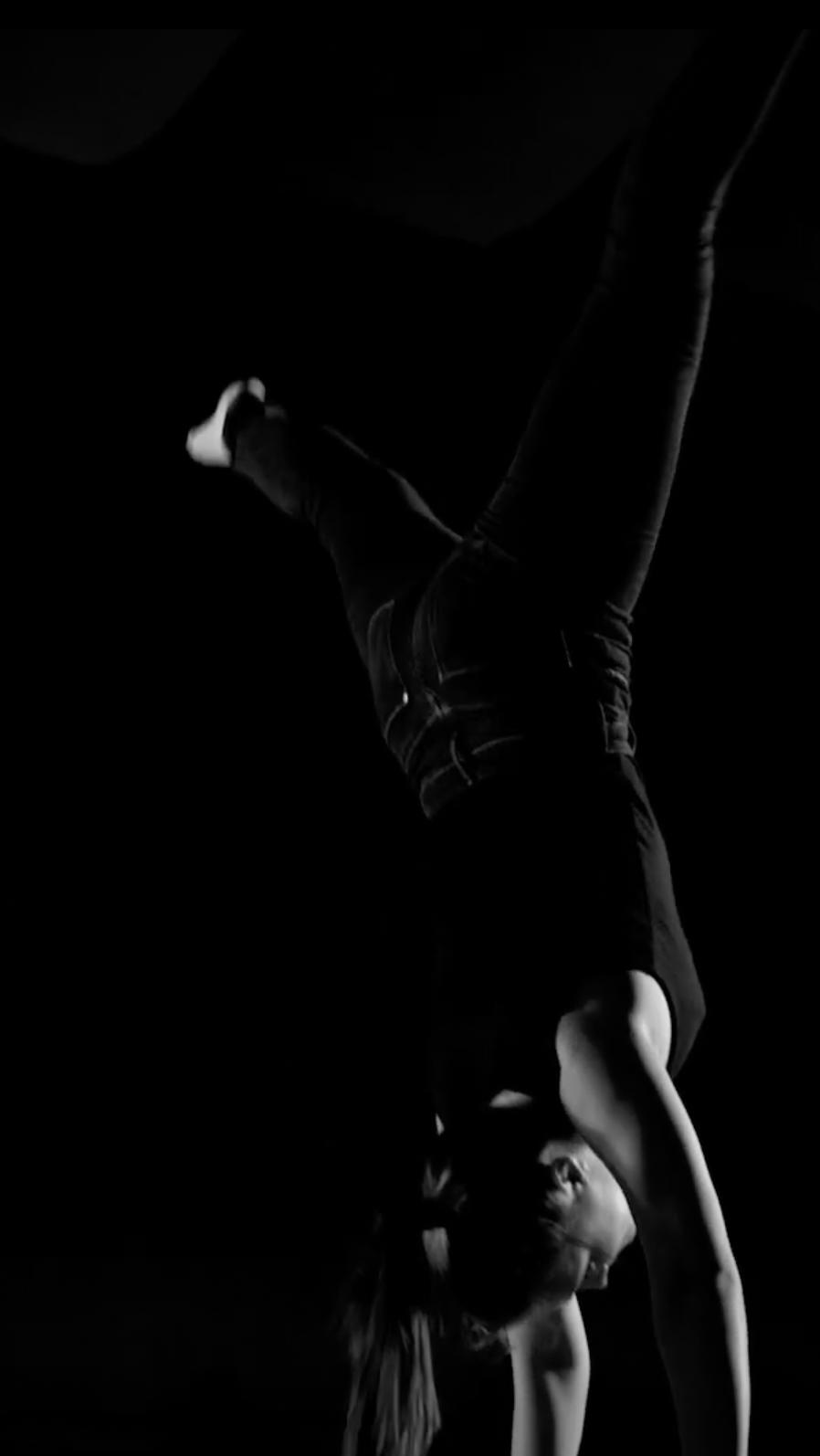
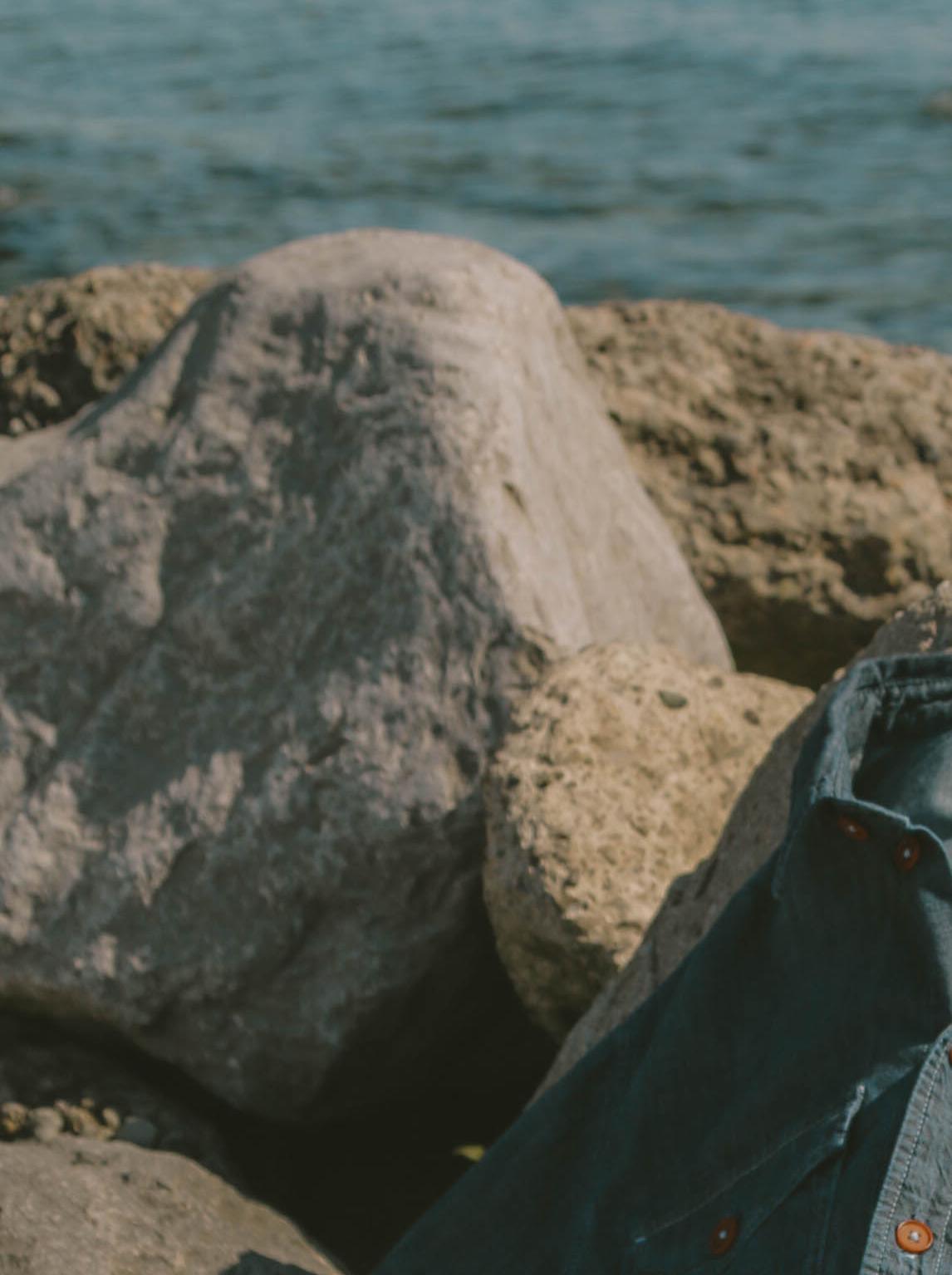
The Wellbeing Economy
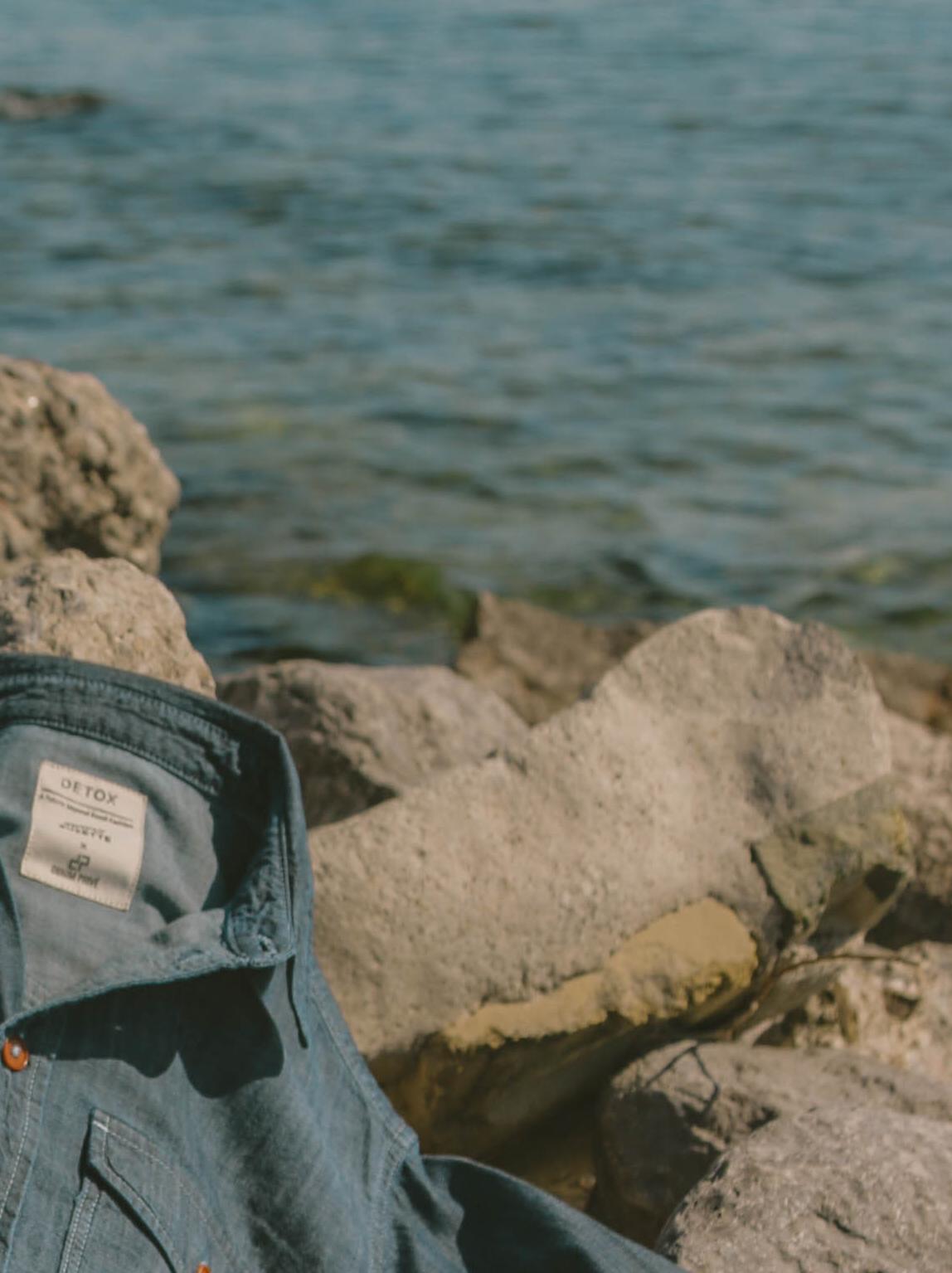
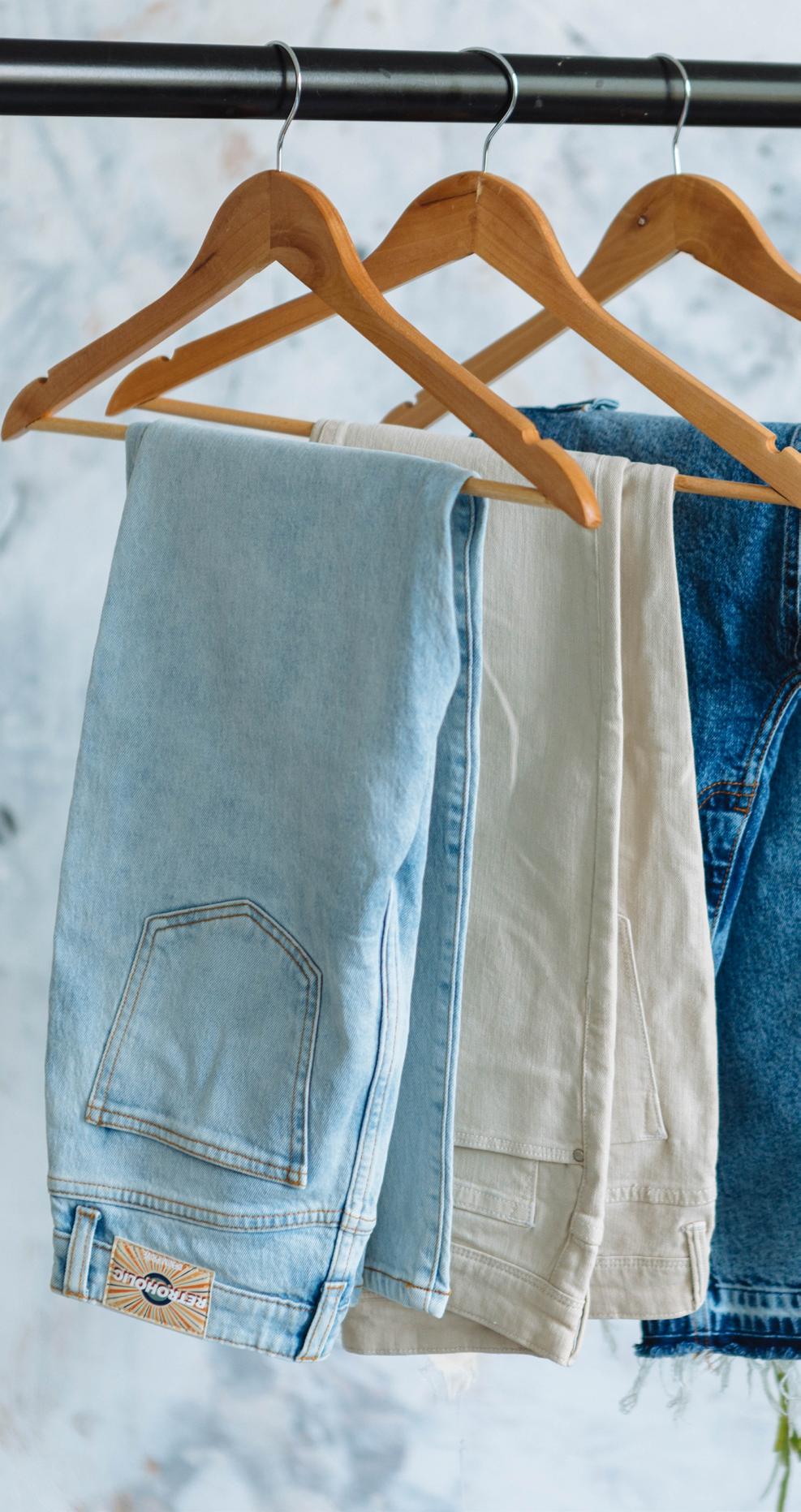
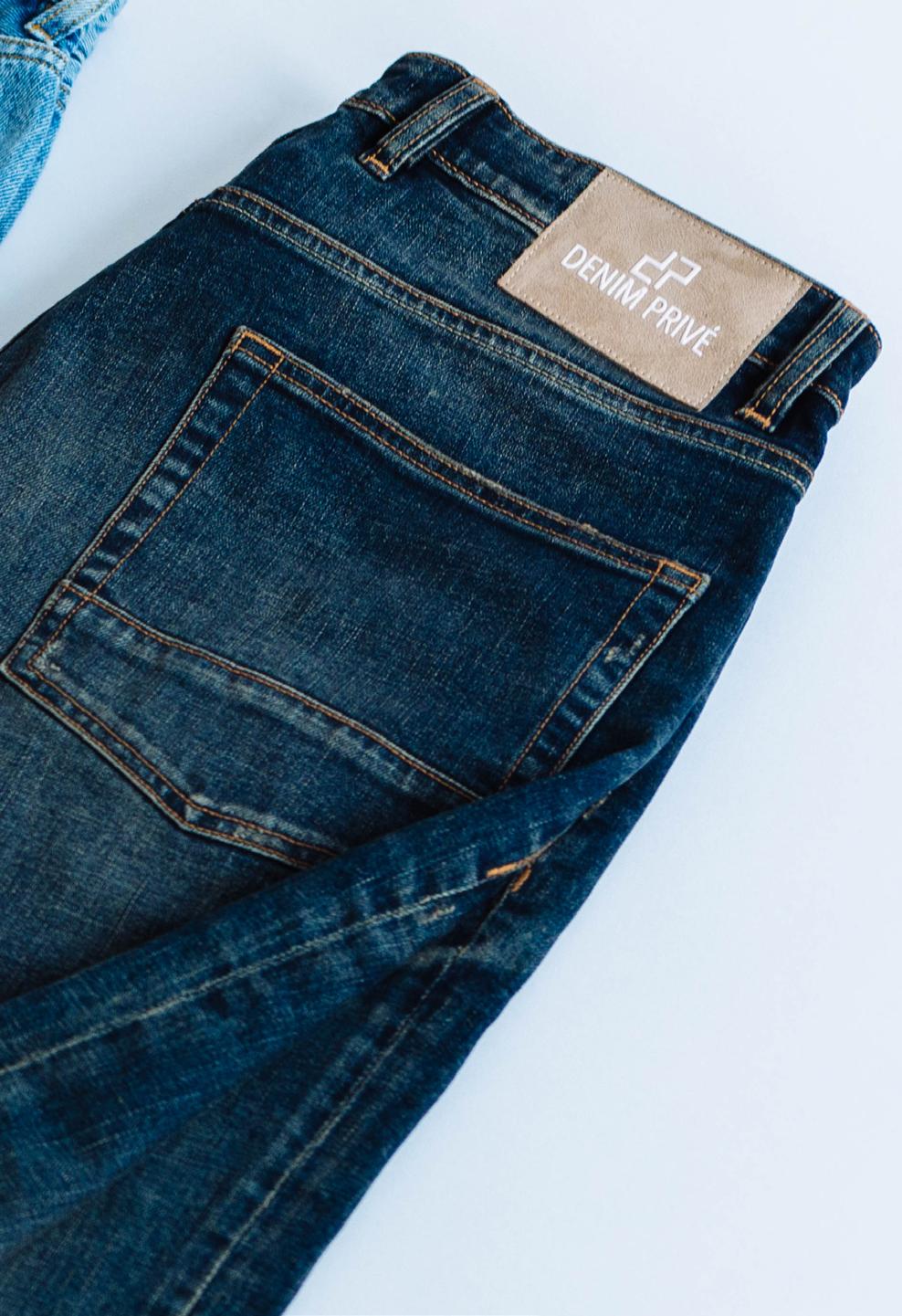
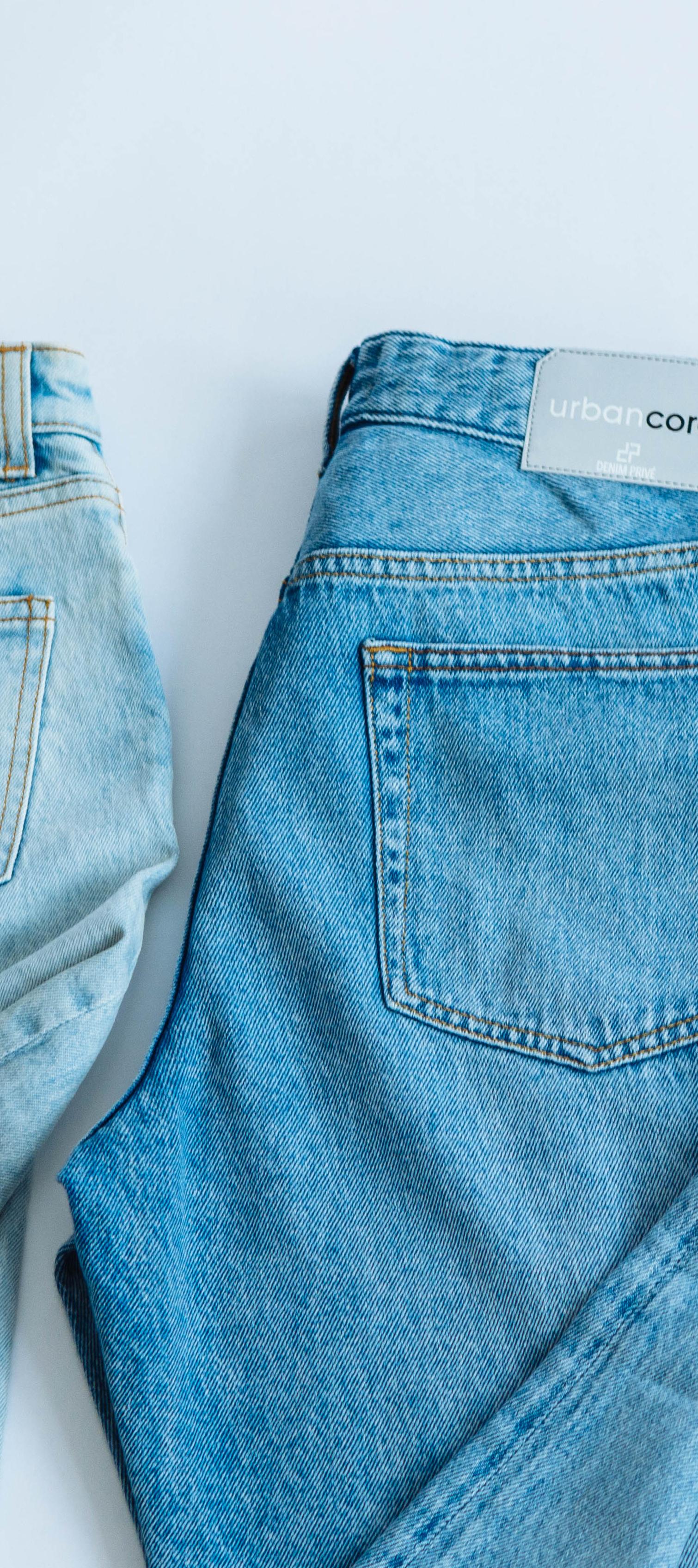

The Problem
with the Past System
Starting around the 20th century, the world began using GDP, Gross Domestic Product, as a measure of a country’s success. All eyes were on financial targets and using this metric of financial growth as the measure for how well a country was doing. However, several factors have caused a shift in how success is measured or at least a shift in the conversation around success.
Globalisation and human and economic development have revealed increasing inequality, environmental crisis, labour concerns, and the unsustainability of a country’s growth.
The global focus used to be to grow the economy as much as possible, but this created a tunnel vision that left out considerations around planetary and human fruition. The old ways used to equate more money or GDP with an objectively better off society. However, increasingly there was evidence that humans and the planet were falling by the wayside.
This set off a series of protests and questioning of what the goals should be for a developing country. What are some more accurate markers that could account for and lead to a more humane, healthy, and sustainable society?
37
What is the
Wellbeing Economy?
Reevaluating the global economy has led to several new definitions of success, progress, and development. This widening of parameters from GDP has come to include other elements, such as: quality of life, wellbeing, health, environmental sustainability. These concepts are then being leveraged to shape frameworks and policies to be used at all levels of operation in organisations and governments.
The Wellbeing Economy is one of the new economic models proposed that prioritises environmental and human well being over purely financial aims.
The UN General Assembly developed the global action plan under the guidance of a wellbeing economy that has taken the form of the Sustainable Development Goals (DSGs) for the years 2015-2030¹. The new focus is clear: natural, social, and human capital are contributions towards a collective wellbeing as measured by progress in 17 significant societal issues linked to quantifiable economic, social, and environmental goals2
1 United Nations (2023), Transforming our world: The 2030 agenda for sustainable development | department of economic and social affairs- https://sdgs.un.org/publications/transforming-our-world-2030-agenda-sustainable-development-17981
2 Au DWH, Sun Y, Wong HT, ( Jun 2023), Editorial: Towards the wellbeing economy: economic, social, and environmental impact on mental wellness- https://www.ncbi.nlm.nih.gov/ pmc/articles/PMC10296166/

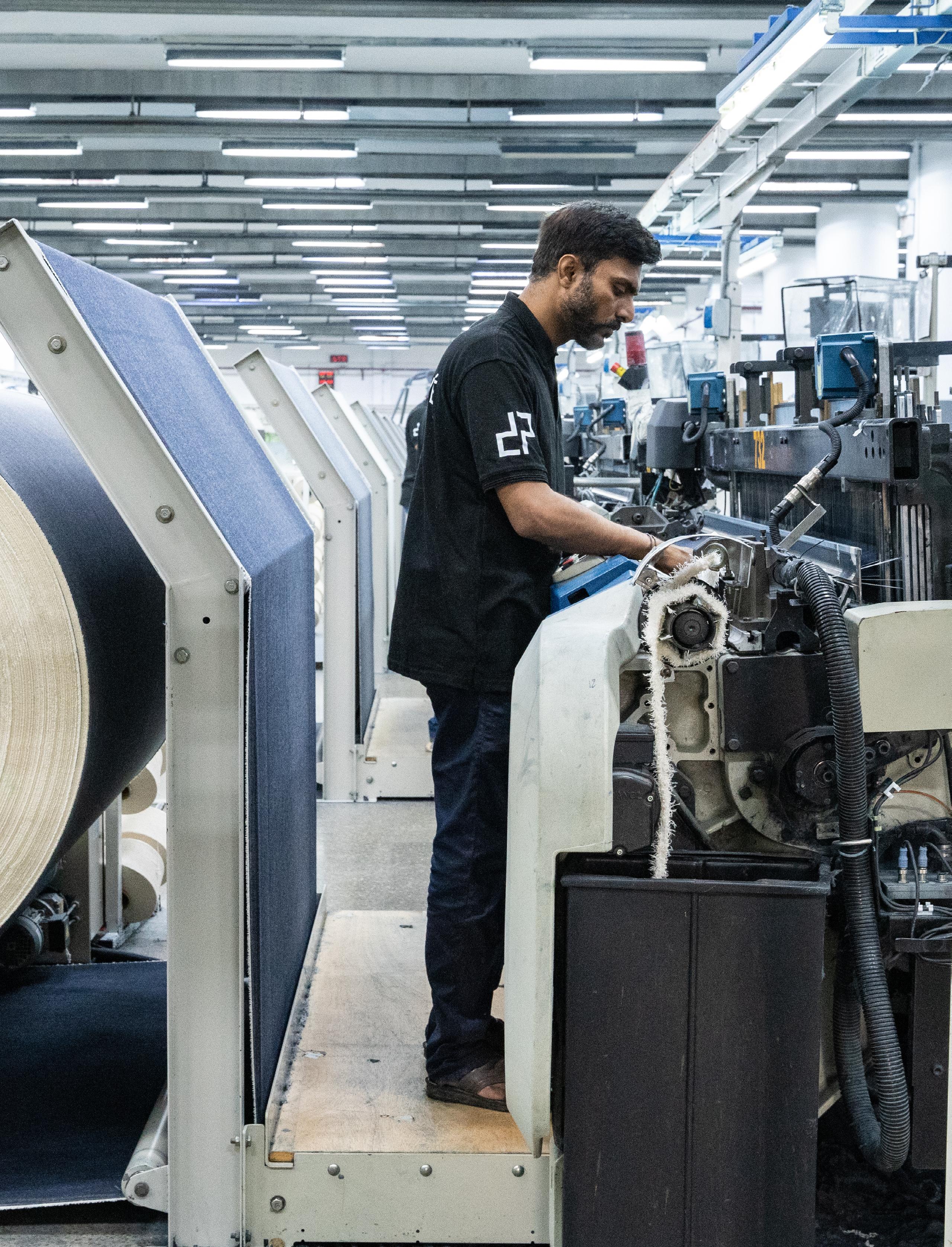
The New
Operating Framework
While greater detail can be found in UN resources, the 17 goals are as follows: no poverty, zero hunger, good health and well-being, quality education, gender equality, clean water and sanitation, affordable and clean energy, decent work and economic growth, industry, innovation and infrastructure, reduced inequalities, sustainable cities and communities, responsible consumption and production, climate action, life below water, life on land, peace, justice and strong institutions, partnerships for the goals.
The Wellbeing economy is an interdisciplinary approach that in essence looks at underlying causes and connections to problems so as to address the root problem from where it starts to where it is perpetuated to where it ends up.
The Wellbeing economy connects intimately with the fashion industries’ growing orientation towards transparency, circularity, reduction of waste, regenerative farming, biodegradability, ending forever waste, safe labour conditions, fair pay, and reevaluating processes along the entire supply chain based on environmental impact.
41
How Denim Privé
and Kassim Denim
Juggling these 17 goals can be overwhelming but sustainable brands like Denim Privé and Kassim Denim track all possible elements of their businesses to make sure these Wellbeing economy standards are being met and improved upon every year.
By taking a closer look at resource usage like land and materials these abstract goals come to life. “Goal 15 is about conserving life on land. It is to protect and restore terrestrial ecosystems, sustainably manage forests, combat desertification, and halt and reverse land degradation and stop biodiversity loss¹.”
While there can be some overlap to the metrics that meet different goals, Goal
For example, Denim Privé works to stop land degradation and manage forests sustainably by choosing to source from farms that apply regenerative farming practices.
This means that even if it is more effort, farmers are treating the land to last not just to produce in the short term. In 2023, Denim Privé sourced 86% of their cotton from the farmers at the Better Cotton Initiative.
In addition to improving land relationships and intentional material sourcing, Denim Privé is focused on recyclability. A big push was made by Denim Privé in 2023 to drive what polyester they did use into a higher percentage of recycled polyester.
This is only scratching the surface, but feel free to pull up the sustainable development goals and run through business models and sustainability reports to see how much fashion brands are tracking along. The Wellbeing Economy isn’t just a philosophical question of what the world should consider valuable, it also has measurable, real ways of getting there. It’s not all a guessing game and
This resulted in 32% of polyester consisting of recycled polyester as opposed to the 6 to 8% of recycled polyester used in previous years. Denim Privé has responded directly to concerns over forest management by planting and maintaining 5,000 trees of native species on 11 acres of land in Pakistan. They have been getting bigger each year and there are plans to expand in 2026.
Play a Role in
the Wellbeing Economy
43
1 Guterres, A. (2023) Forests, desertification and Biodiversity - United Nations Sustainable Development, The Sustainable Development Goals . Available at: https://www.un.org/sustainabledevelopment/biodiversity/

See the Wellbeing Economy in Action at At Kingpins 2024
Sometimes the details of how to achieve these lofty wellbeing goals gets lost in the paperwork. Kingpins is an opportunity for denim producers and enthusiasts to gather and connect the abstract ideas and far away production to a physical, tangible showcase of the innovative processes, the sustainability progress, the connection we all have that has turned the world into a collaborative reality.
Denim Privé is emblematic of the responsibility denim producers can take in building the Wellbeing Economy. The collection is biodegradable because of the complete reliance on natural and compostable fabric and materials. Even the trims don’t include plastic waste, excess of chemicals, or petrochemical materials. Check out what the Wellbeing Economy looks like at the Denim Privé Kingpins booth in April 2024 in Amsterdam.
45
Podcasts by Denim Privé and Kassim
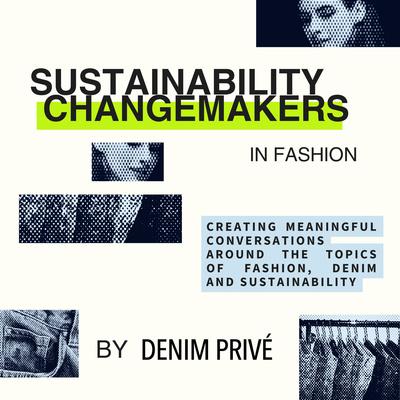
SUSTAINABILITY CHANGEMAKERS BY DENIM PRIVÉ
The teams at Denim Privé and Kassim Denim pulled together episodes from their respective podcasts to highlight the way in which the collective is the coming together of people to solve sustainability issues and concerns that affect the entire supply chain.
Sustainability Changemakers in Fashion by Denim Privé is a podcast born with sustainability enthusiasm and a passion for the global denim community. The mission of the podcast is to create meaningful conversations around the topics of fashion, denim, and sustainability. Get to know key industry players and the work that goes into building a sustainable future together.
DENIM THREADS BY KASSIM
Denim Threads was designed to educate on the sustainable production of fashion, specifically fashion. Discussions will feature denim experts, suppliers, collaborations, industry pioneers, and close friends that deal directly with the fashion supply chain, dissect modern day challenges, and use the latest technology behind every fade.
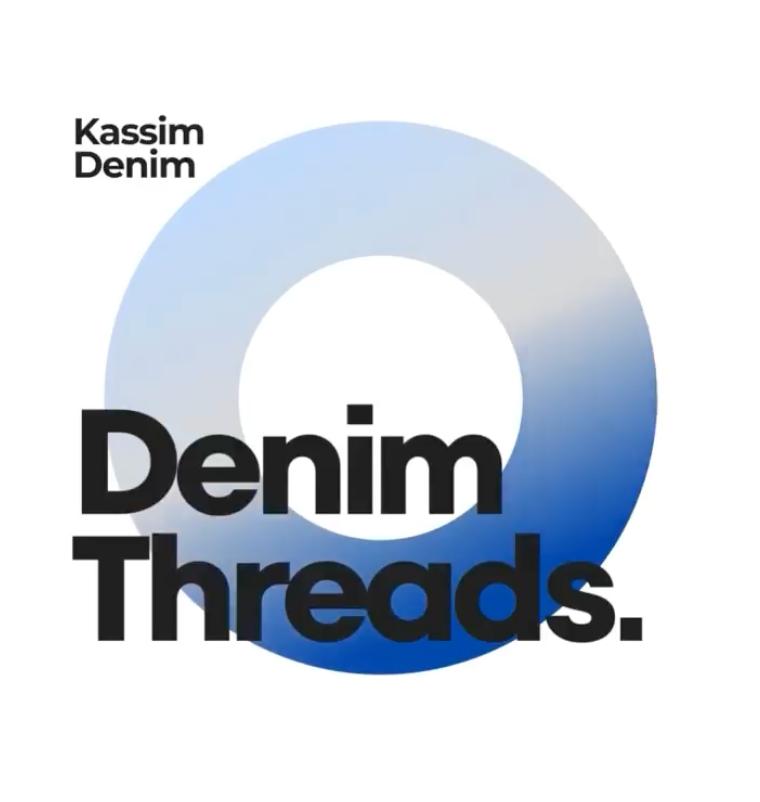
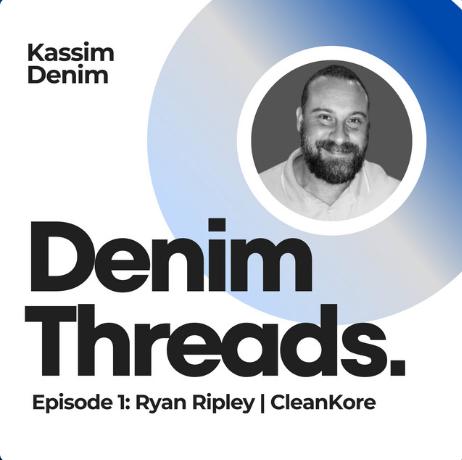

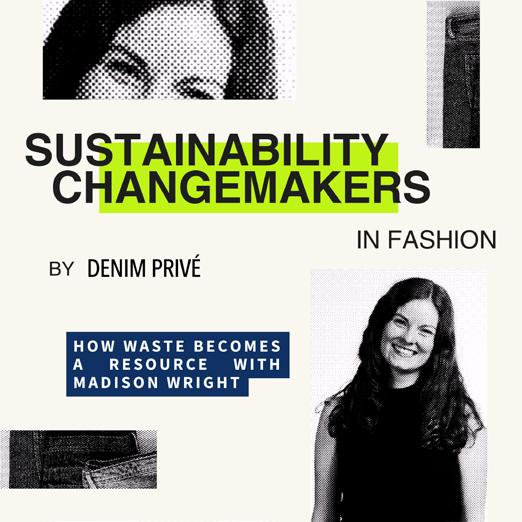
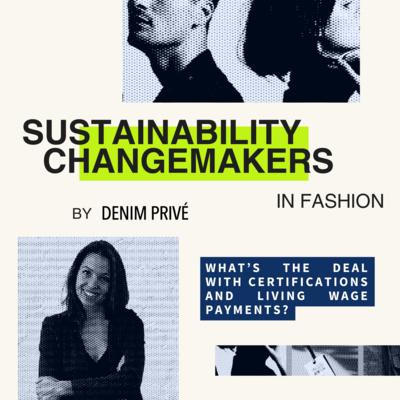
HOW KEEPING THE CORE OF A THREAD WHITE MAKES MILLS MORE SUSTAINABLE
In this debut episode of Denim Threads, we chat with Ryan Riley, Vice President of Operations at CleanKore, about how changes to existing machinery and processes at denim mills can cut cost and chemicals. Getting more sustainable can start with what you already have.
THE REALITIES OF COTTON ALTERNATIVES
Tuncay Kılıçkan from Lenzing Group brings decades of denim experience to the conversation of what cotton alternatives mean for the denim industry. Cotton alternatives are not here to eliminate cotton use, but to alleviate fashion’s dependence on it as the only way to achieve denim perfection.
HOW WASTE BECOMES A RESOURCE
This episode features Madison Wright, a circular economy specialist. The discussion centres around the circularity solution, Pentatonic’s role in connecting brands and sustainability solutions, and the origin of Hey Fashion, which was born out of a desire to educate for a future that isn’t lost but in need of solutions and action.
WHAT’S THE DEAL WITH CERTIFICATIONS AND LIVING WAGE PAYMENTS?
Mathilde Charpail, Managing Director at SANE Standard talks to us about the ins, outs, and truths of the certification industry. We also explored a topic she became well acquainted with through her educational platform for fashion consumers, Sustain Your Style: living wage payments. What are they and why are they so difficult to understand and standardise?
Featured episodes
47

Contributors
Photographer
Alexander Chai
Model Photographer
Cam-Ly Nguyen
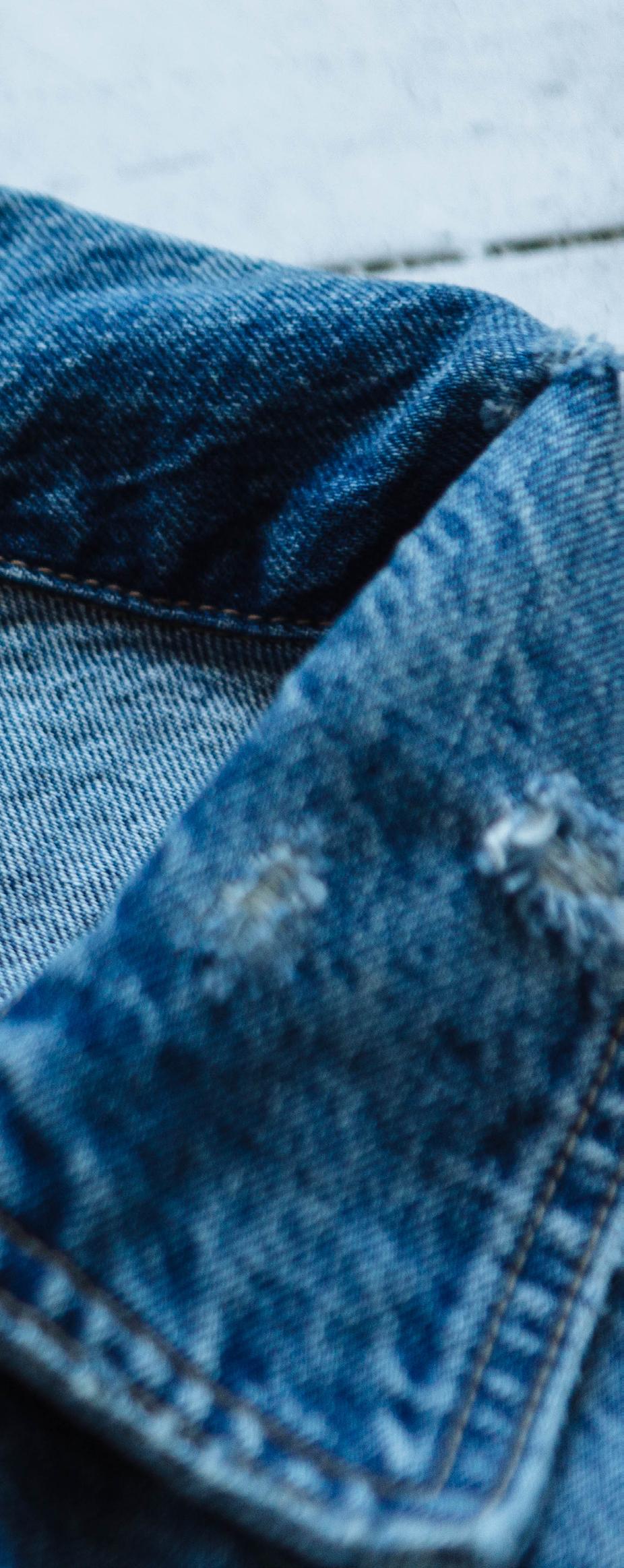
Copywriter and Creative Director
Natalia Yépez Frias
Creative Art Director
Maxine Ho-Tong
Graphic Designer
Brogan Lindsay | Shania Graham
Ilustration Designer
Michelle Barajas
Creative Agency
Your Social Recipe
Publishers
Denim Privé and Kassim Denim
Guest Writers
Ani Wells
Stijntje Jaspers
All rights reserved. No part of this publication may be reproduced in whole or part without the written permission from the publisher. The views expressed in Changemakers are those of the respective contributors and are not necessarily shared by Changemakers or Denim Privé and its staff. The magazine welcomes new contributors but can assume no responsibility for unsolicited submissions.
Thank you for supporting independent publishing. To remain a part of our community, and join the wider denim, fashion, and sustainability conversation, visit our website and subscribe to our newsletter.
49


P 183-186, Deh Khanto, Main National Highway, Karachi 75100, Pakistan +92 21 359 260 017 contact@denimprive.com ecology@denimprive.com www.denimprive.com



 Arsal Kassim, CEO and Creative Director at Denim Privé
Arsal Kassim, CEO and Creative Director at Denim Privé





































































